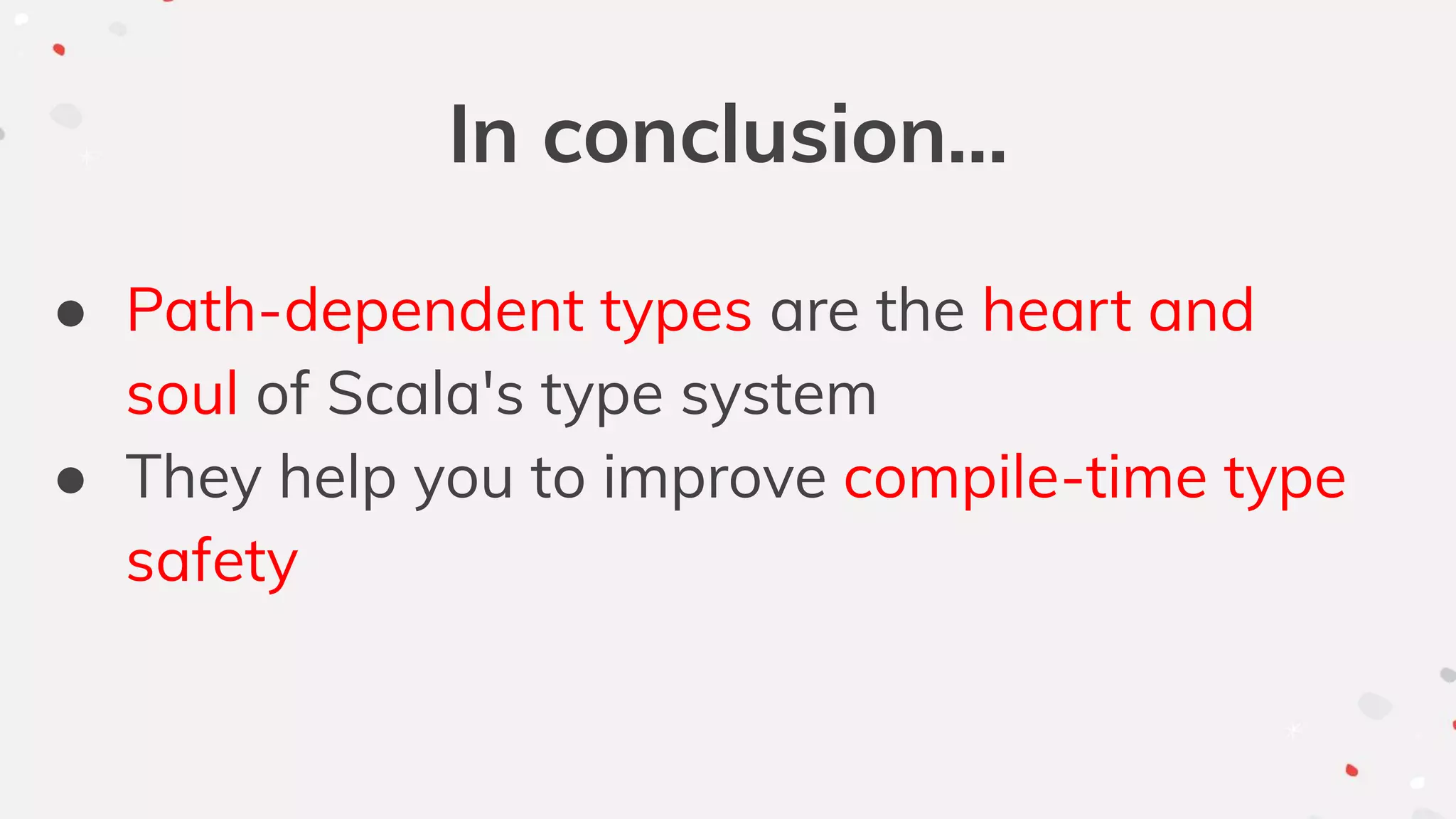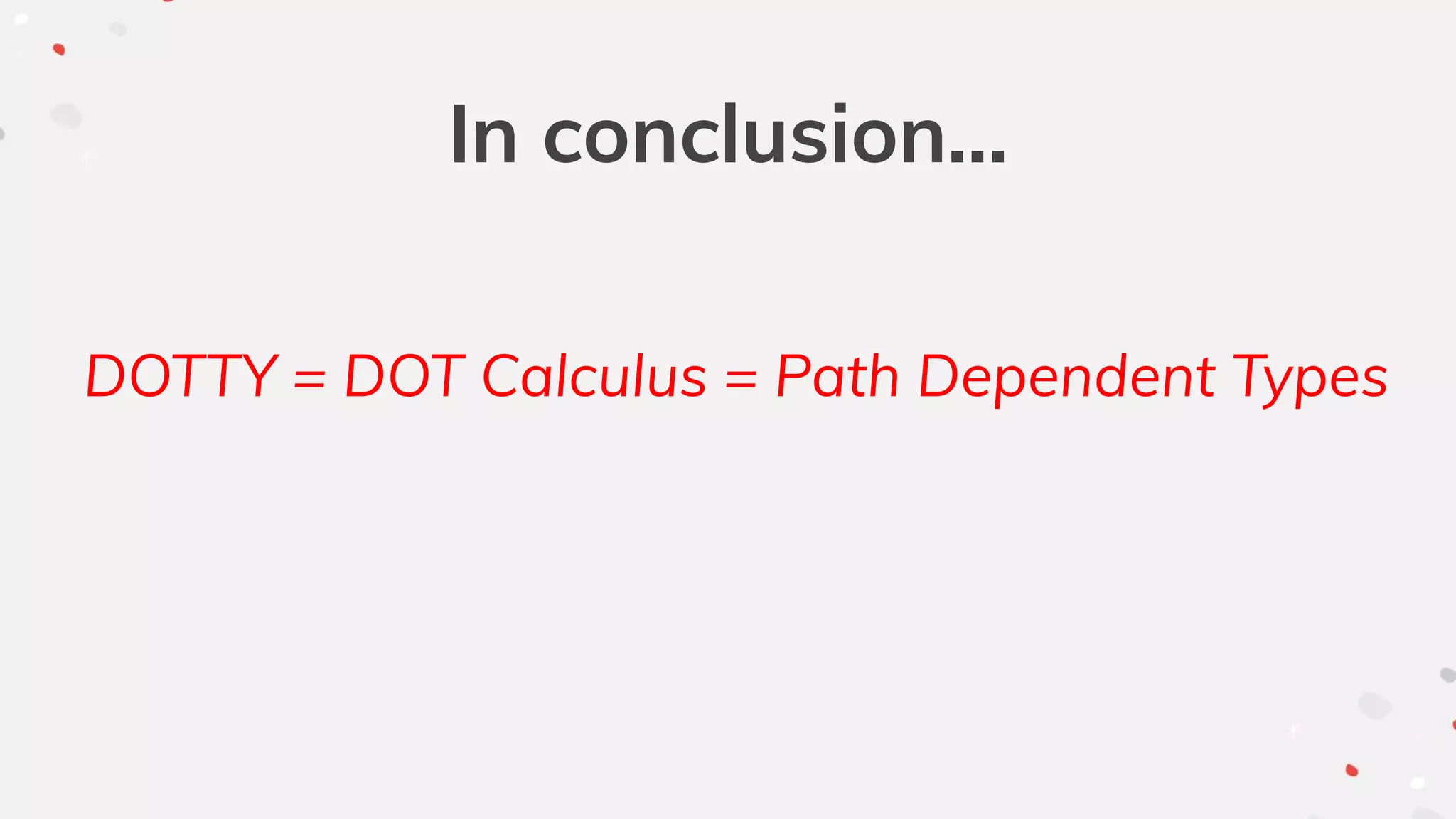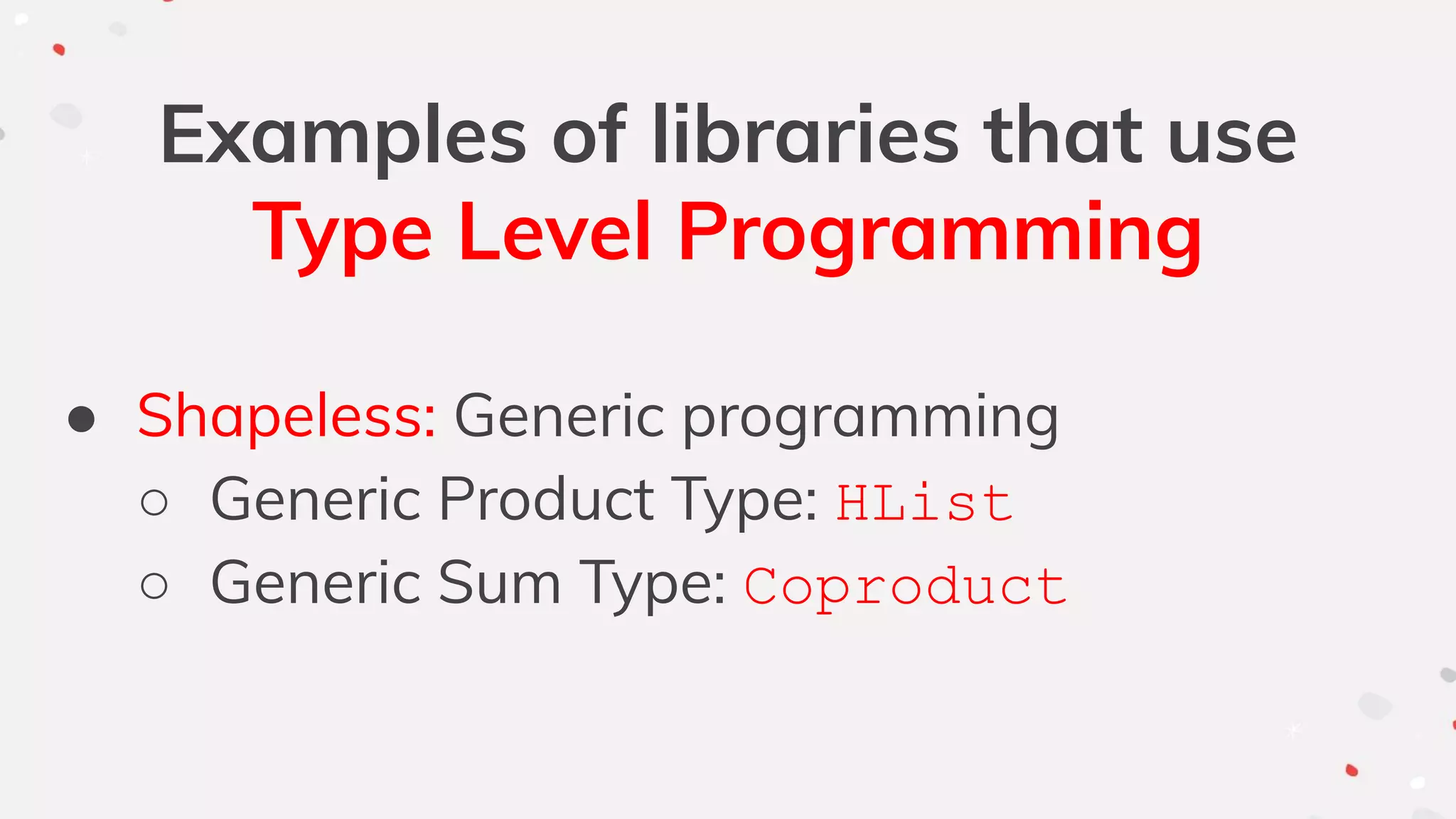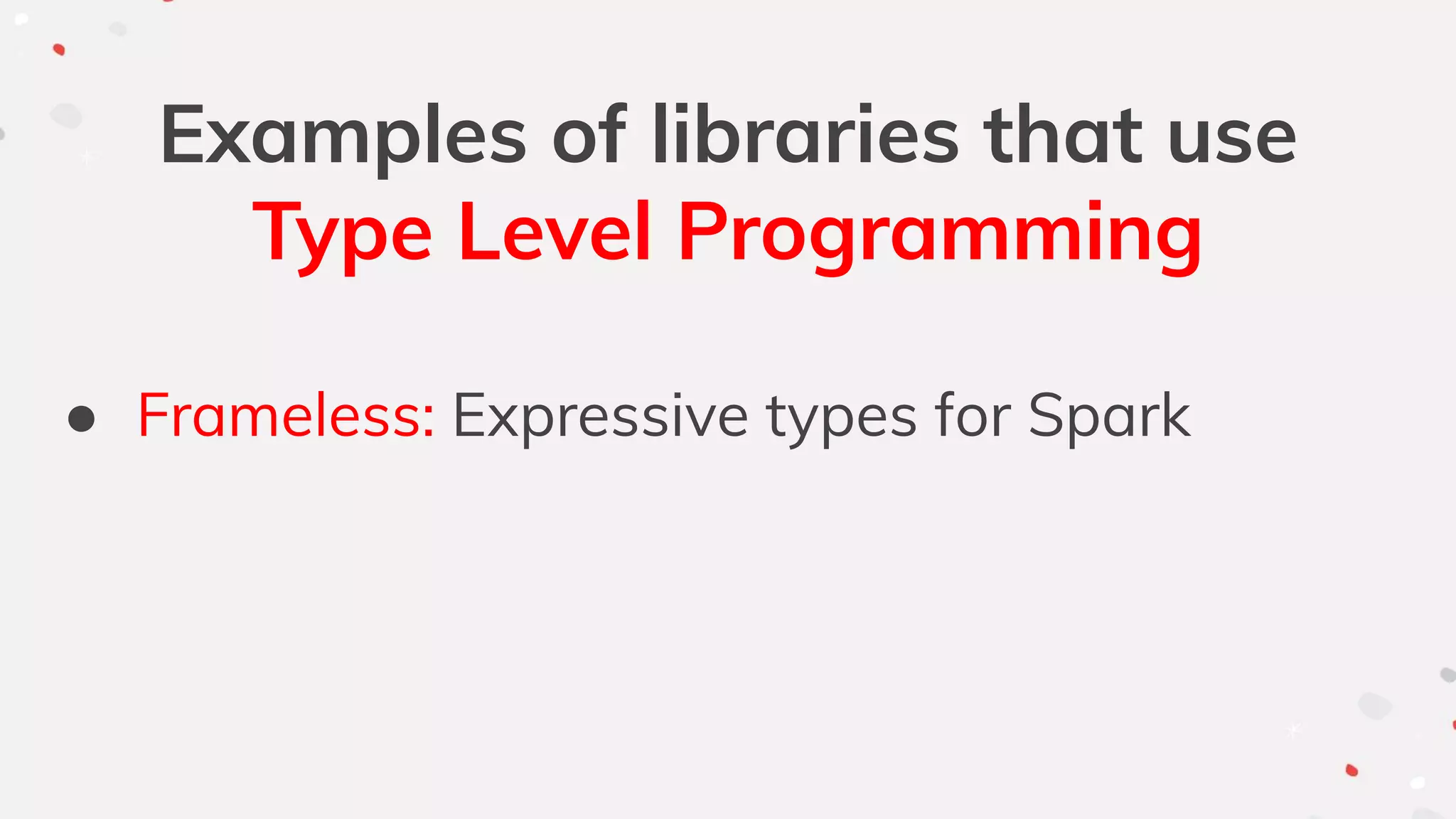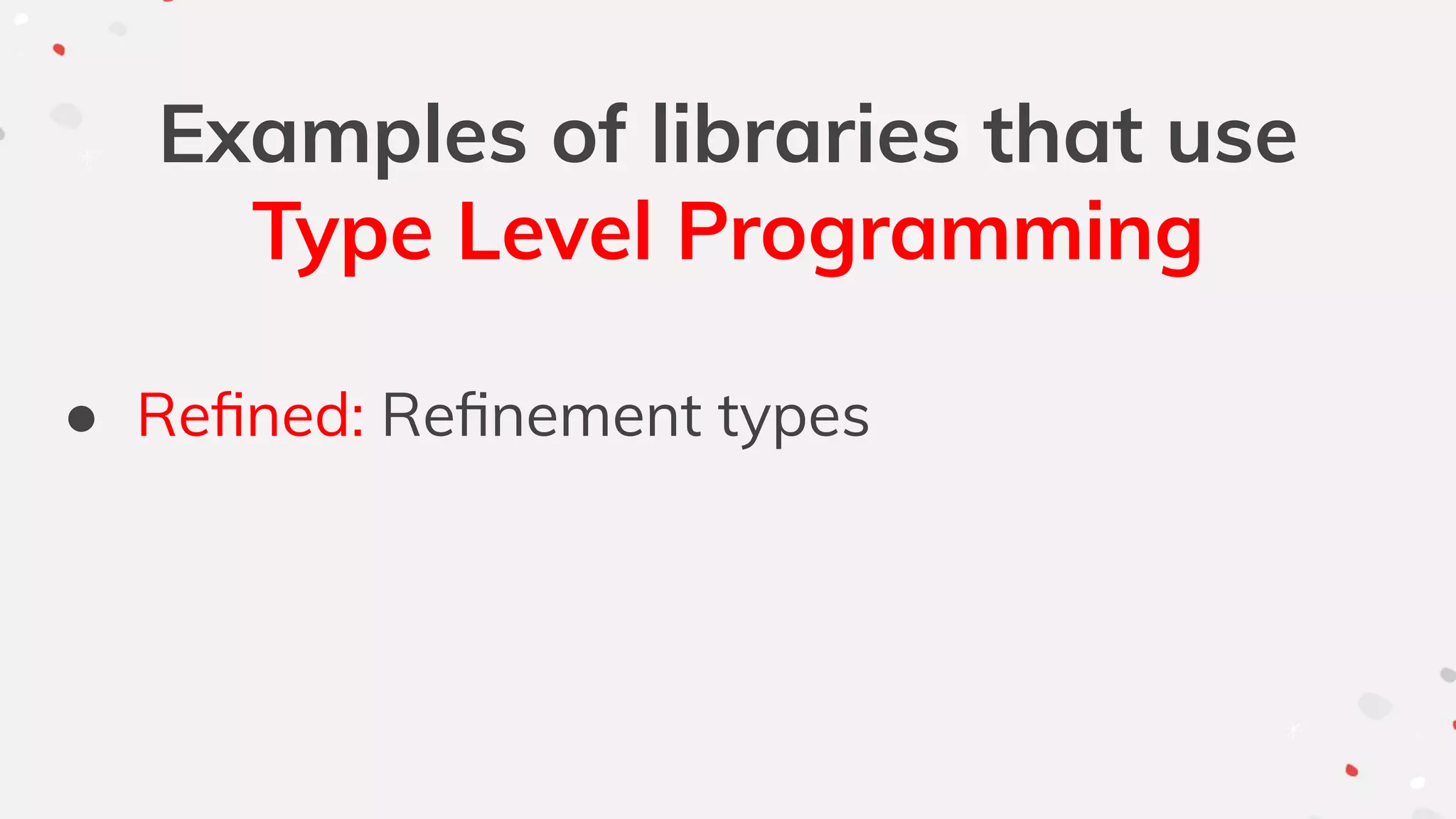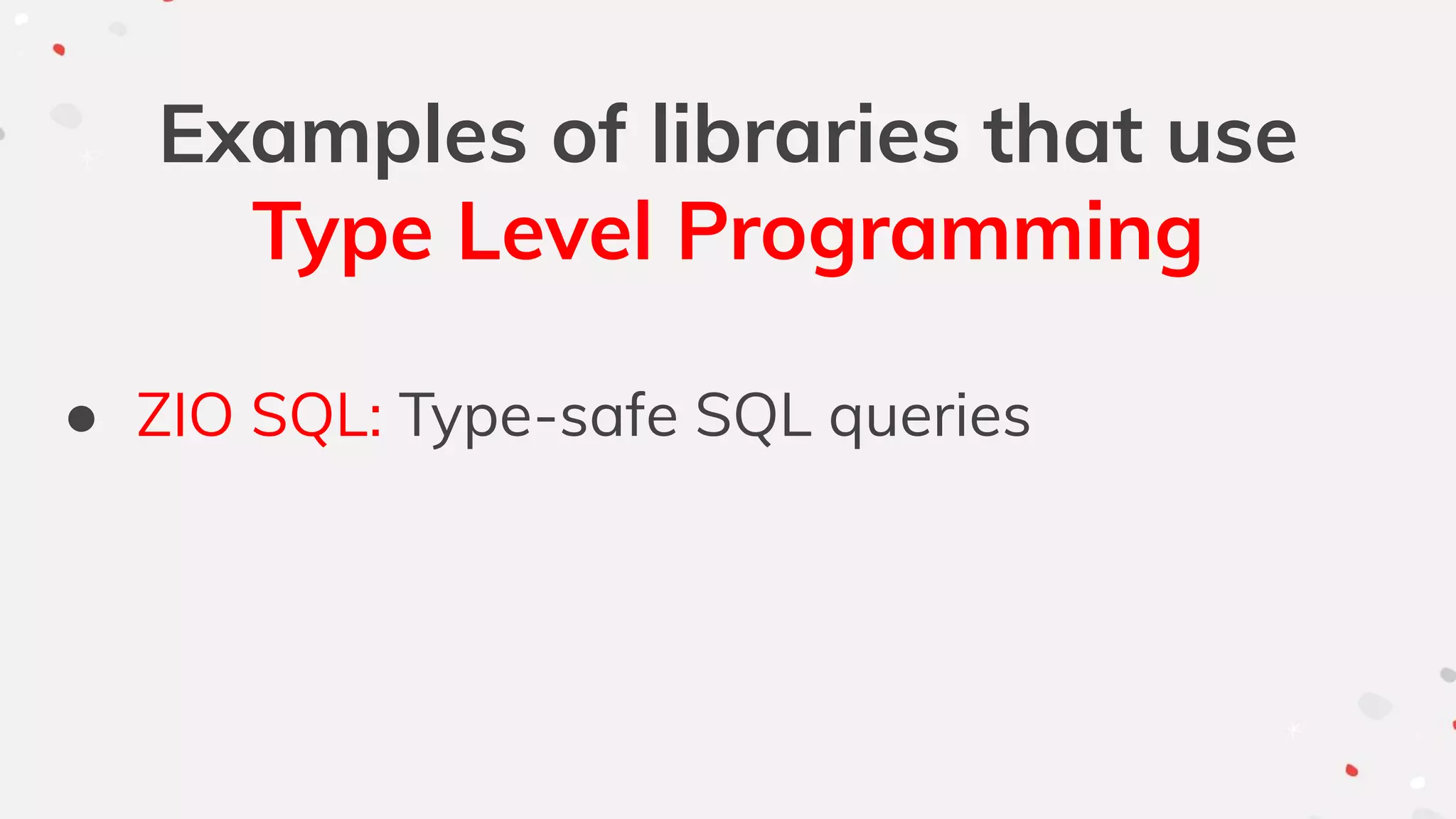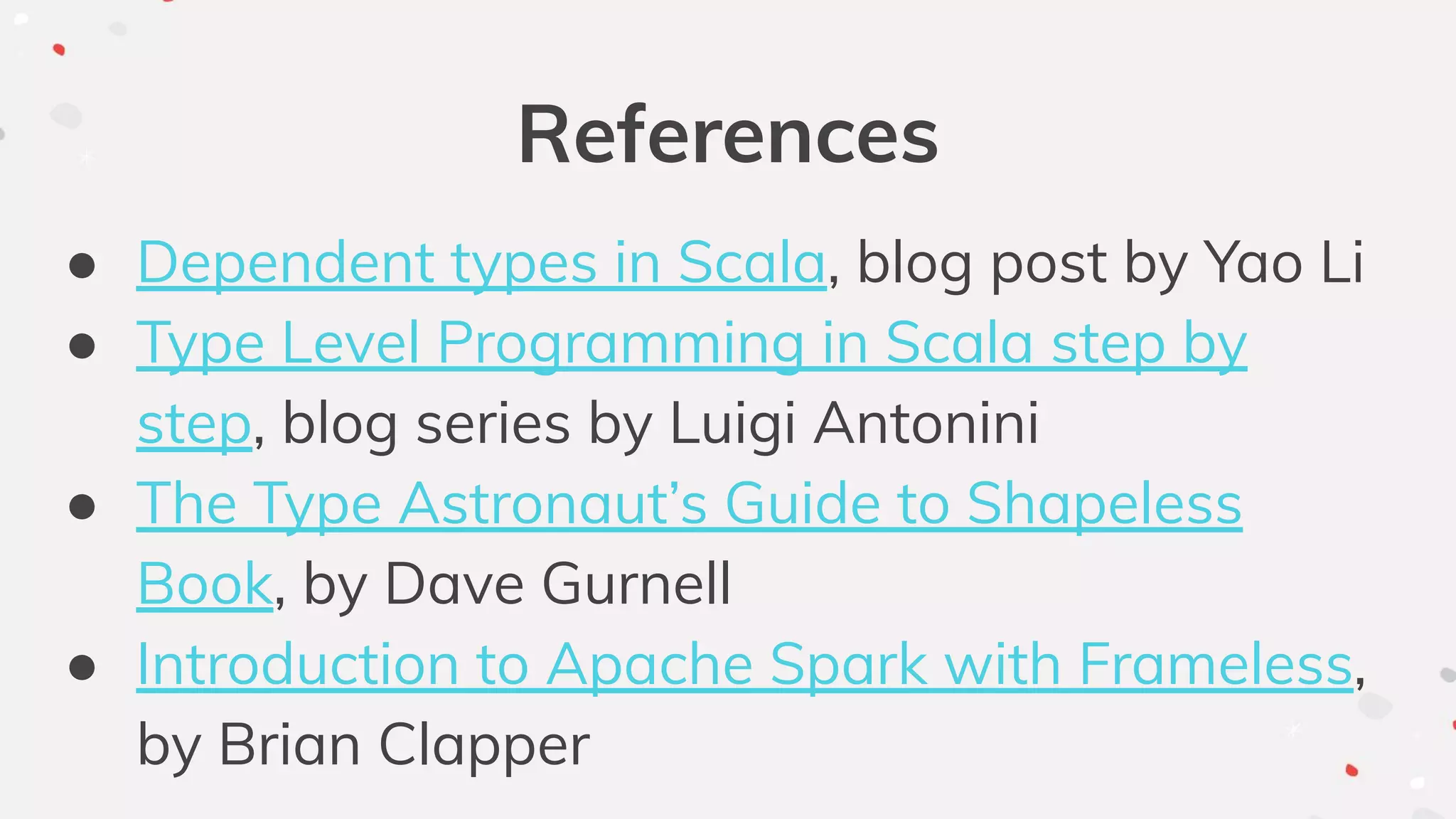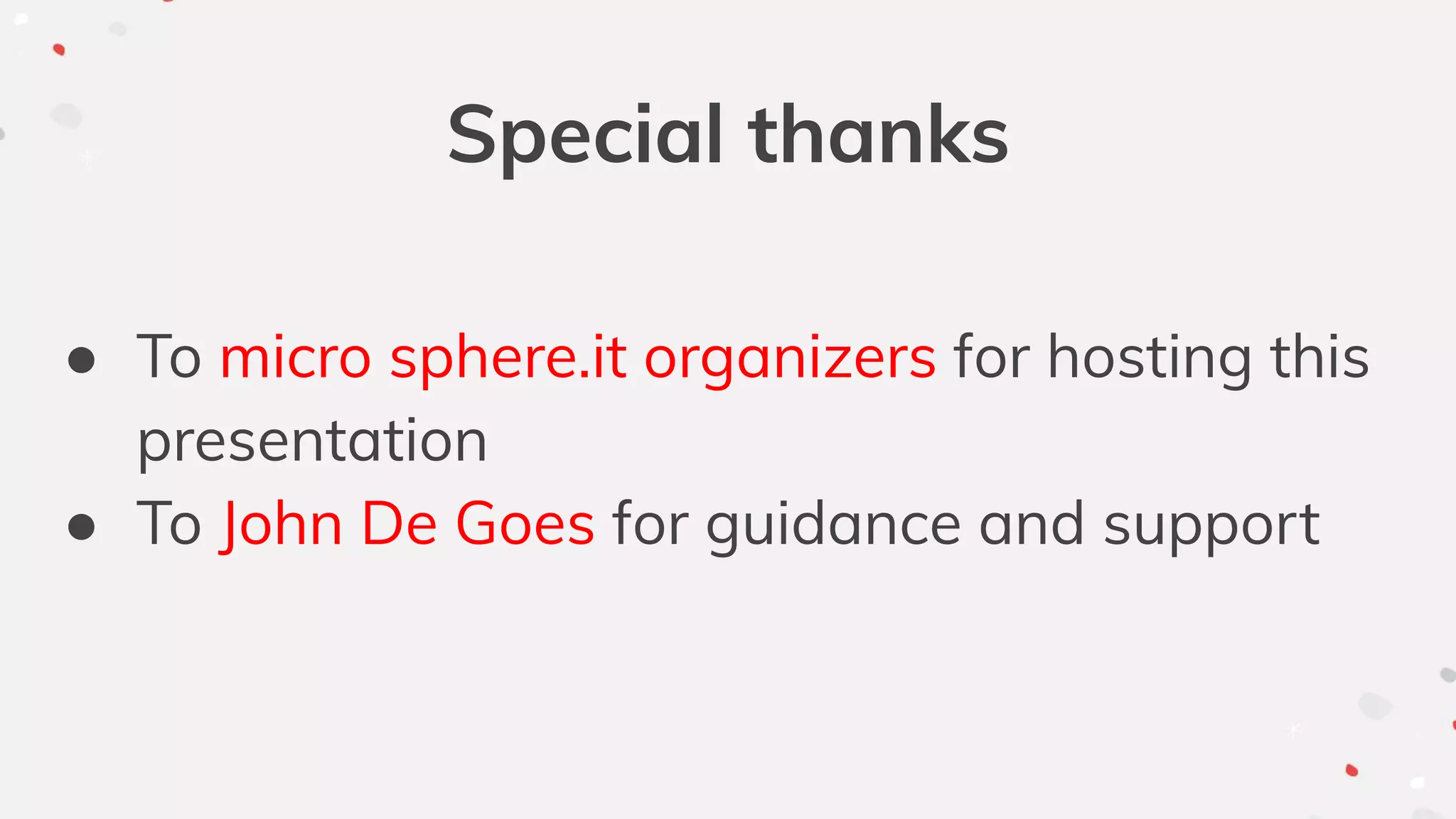The document discusses type-level programming in Scala, emphasizing the significance of dependent types in enhancing type safety and minimizing runtime bugs, particularly in the context of Spark's DataFrame API. It provides examples of how libraries such as Frameless leverage Scala's type system to catch errors at compile-time instead of at runtime. The presentation concludes by highlighting various libraries that utilize type-level programming techniques, such as Shapeless, Refinement, and ZIO SQL.
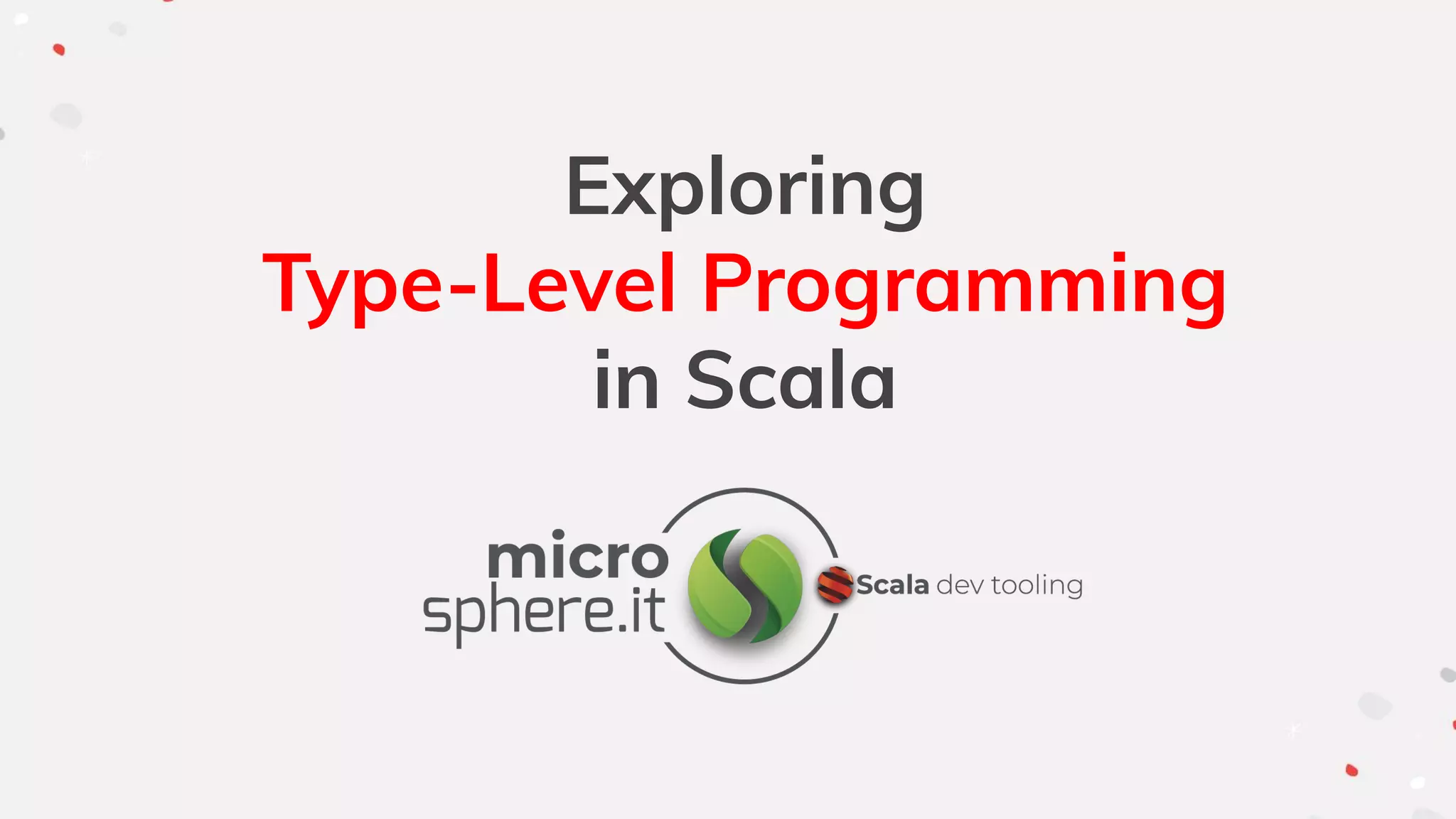
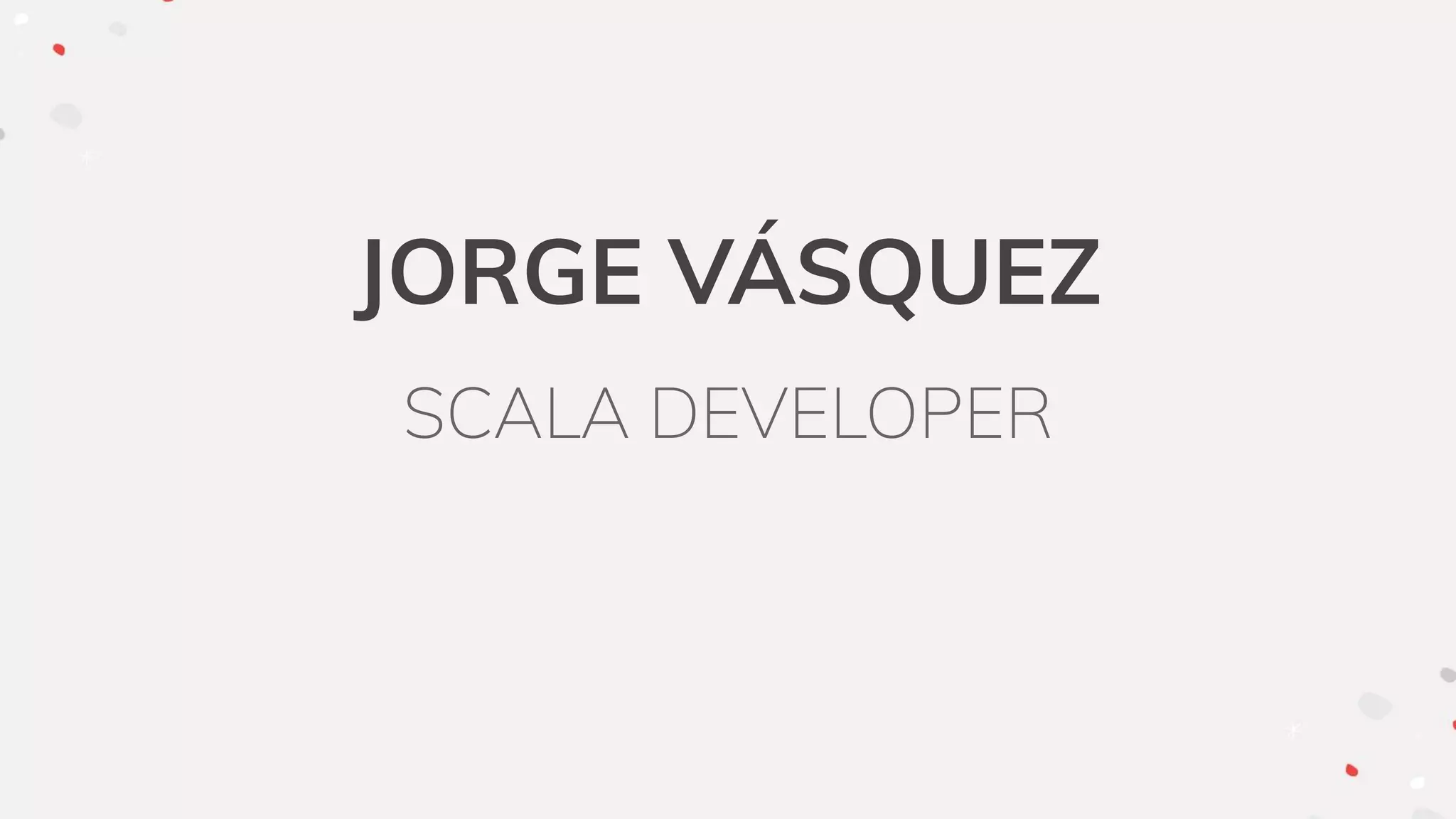
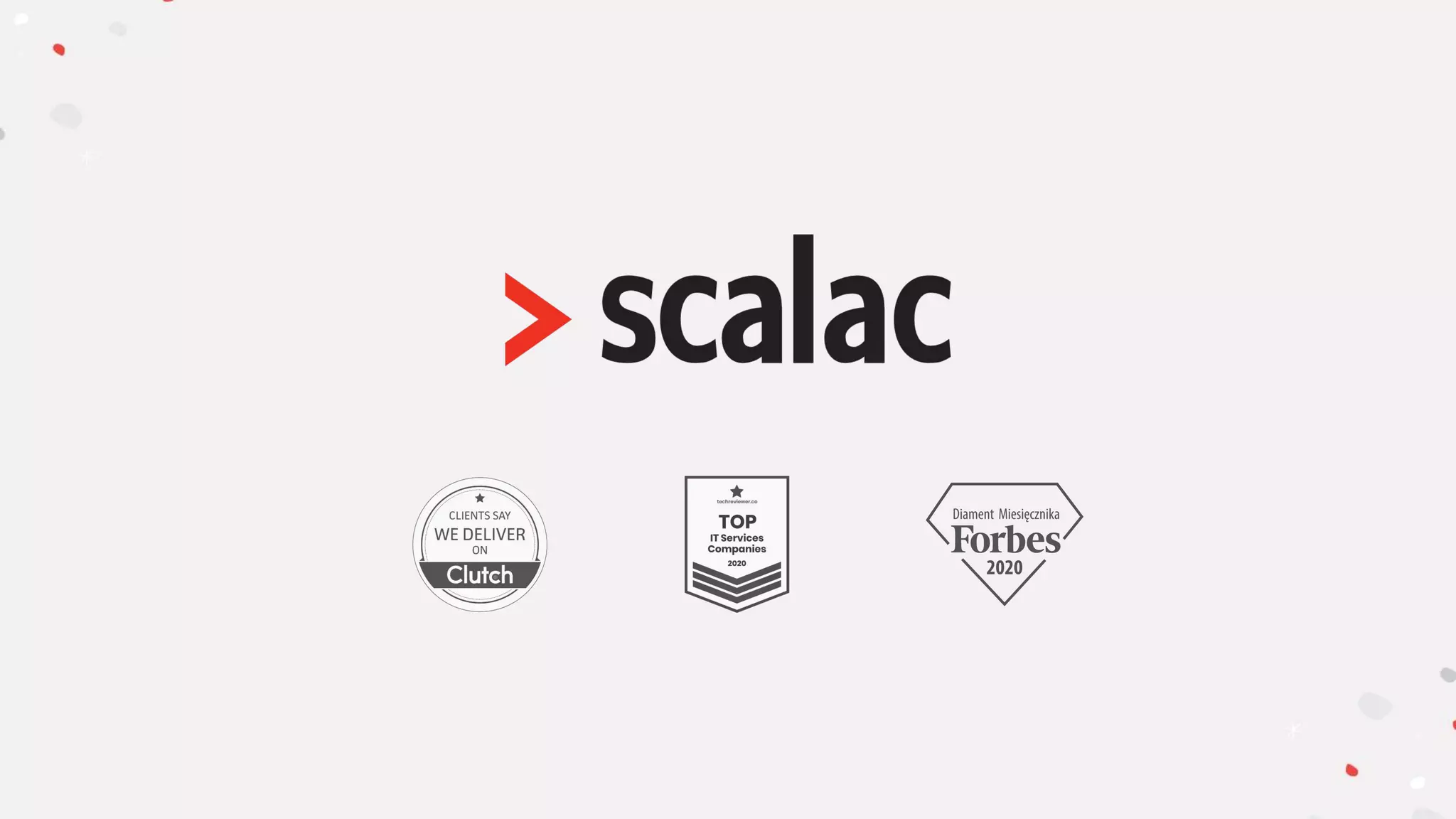
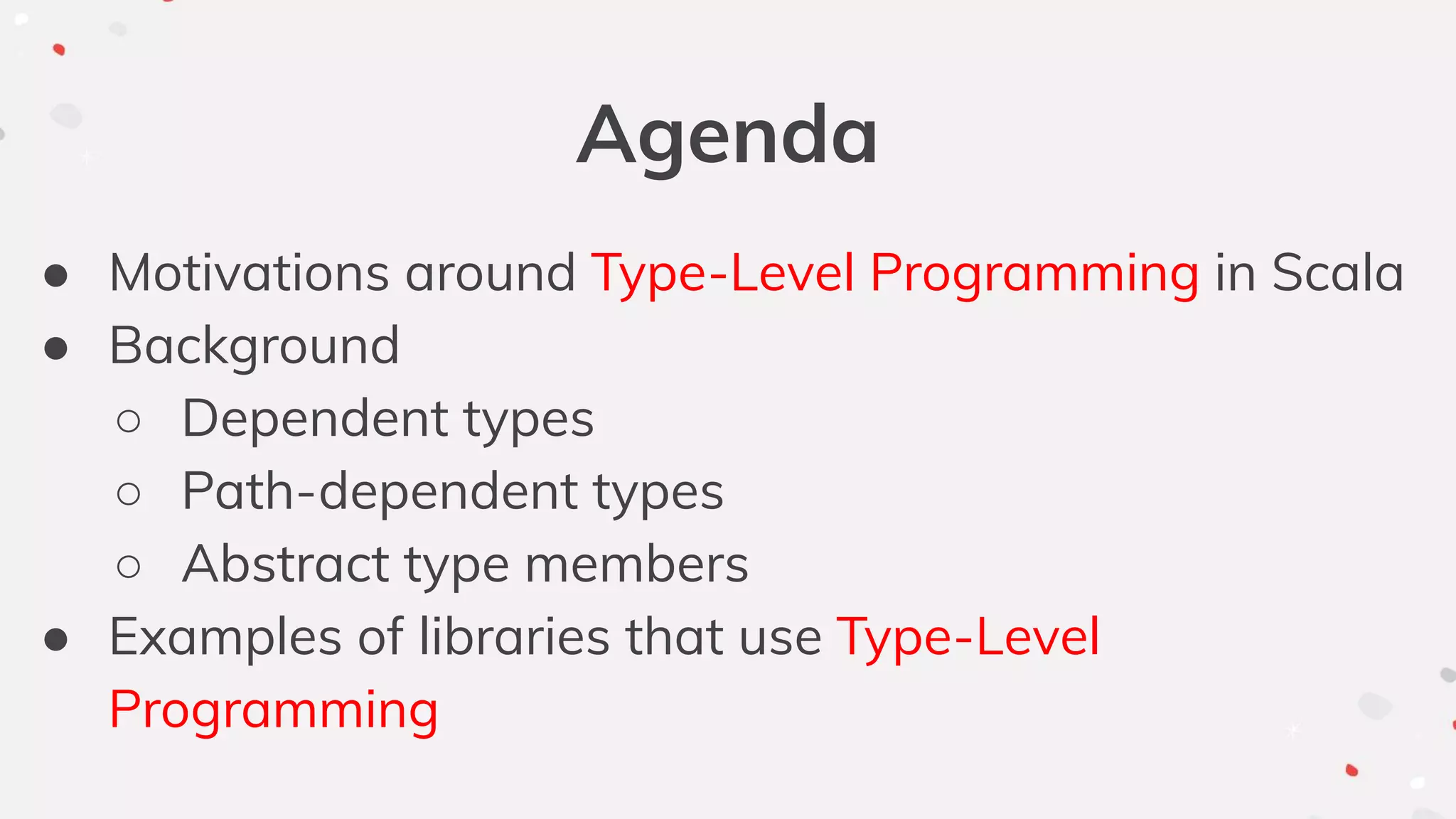

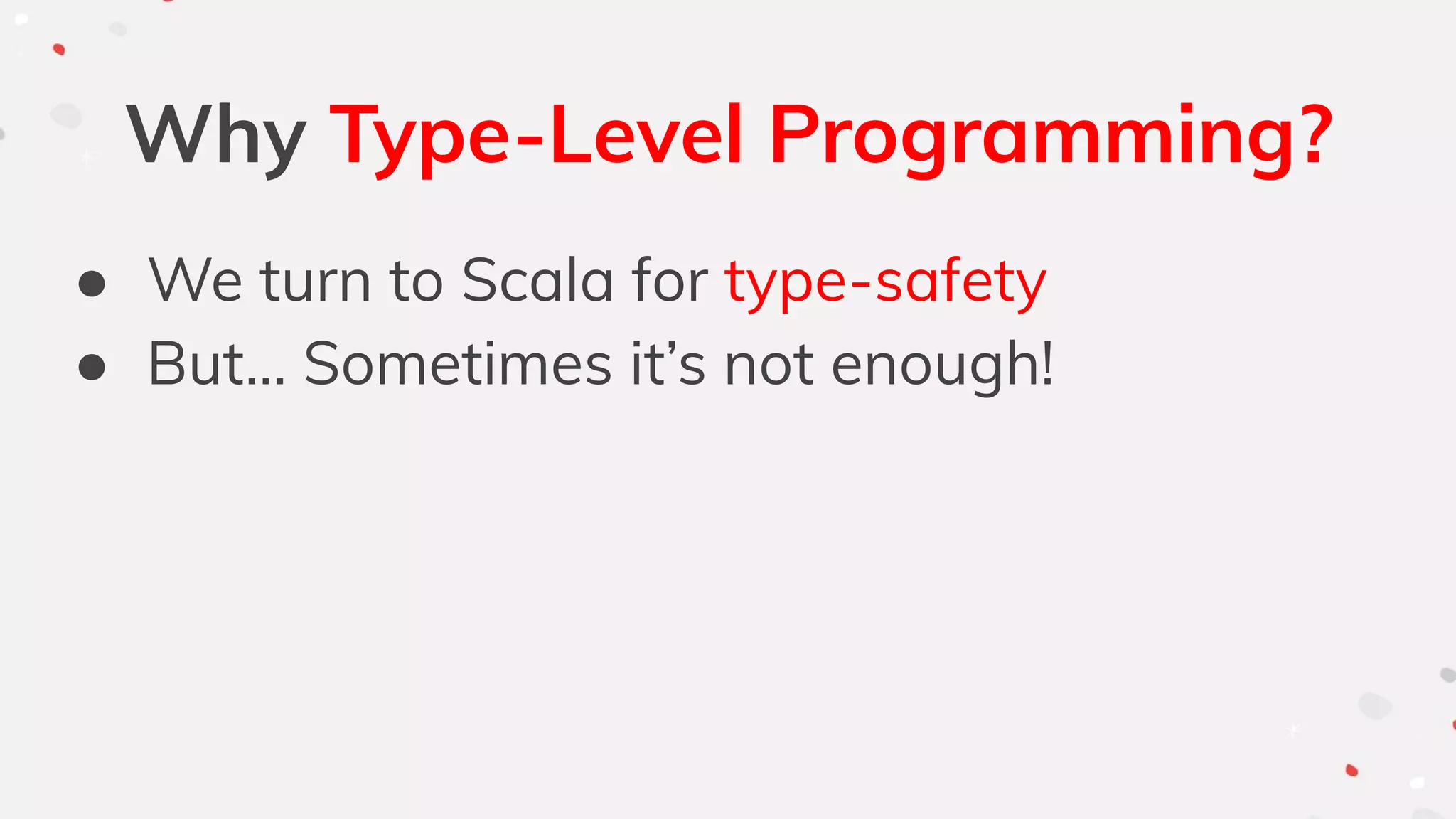
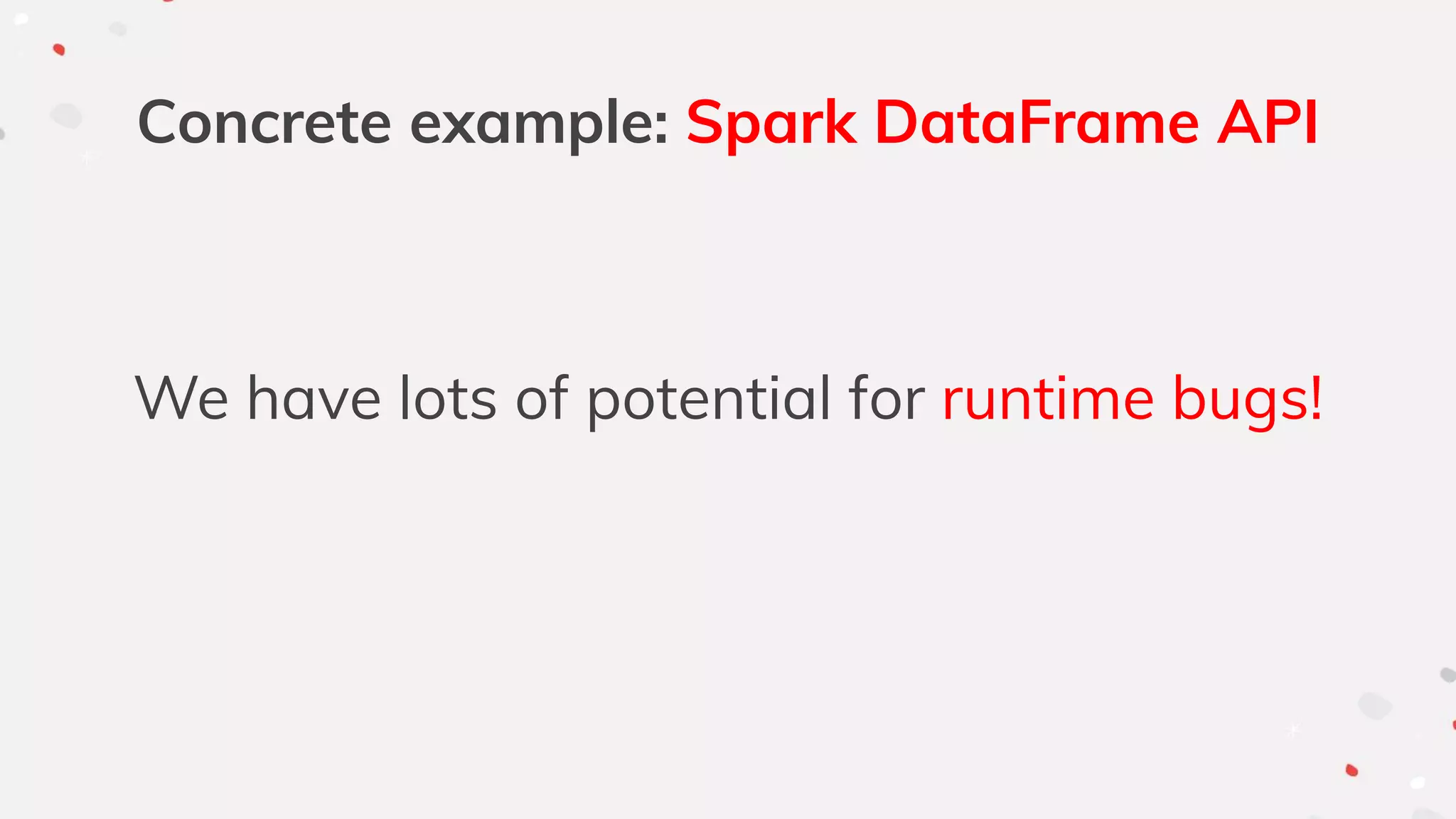
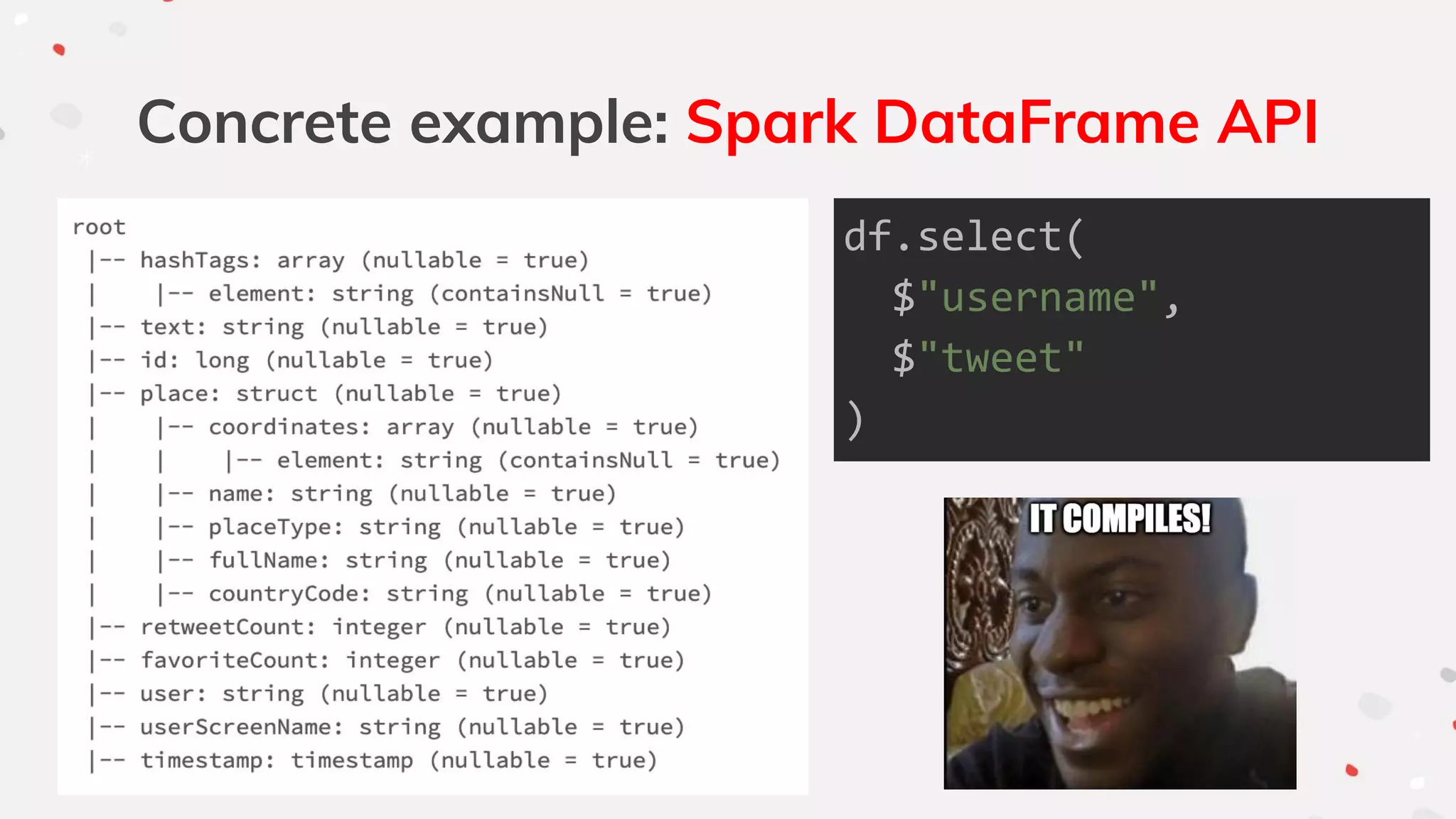
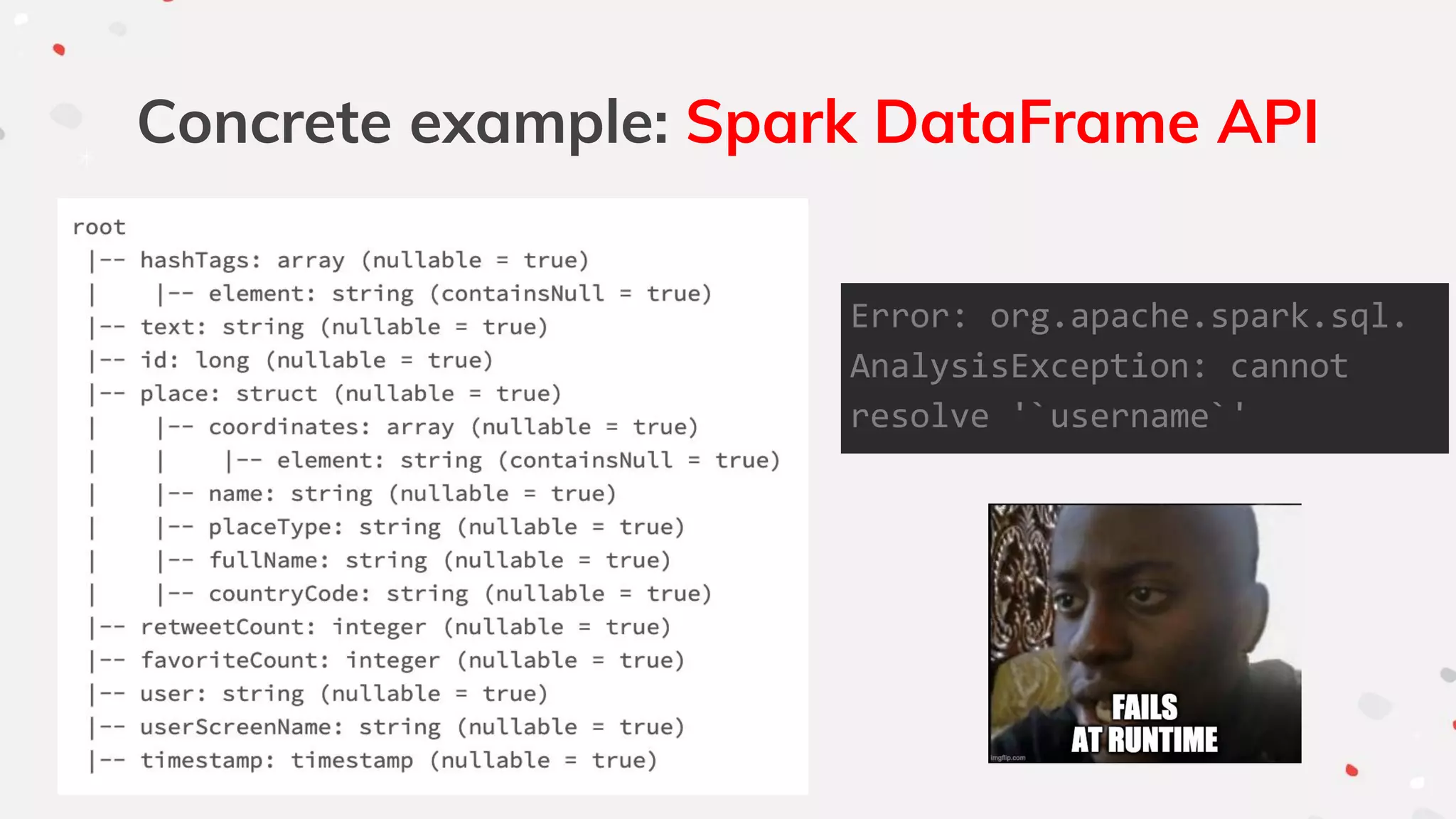
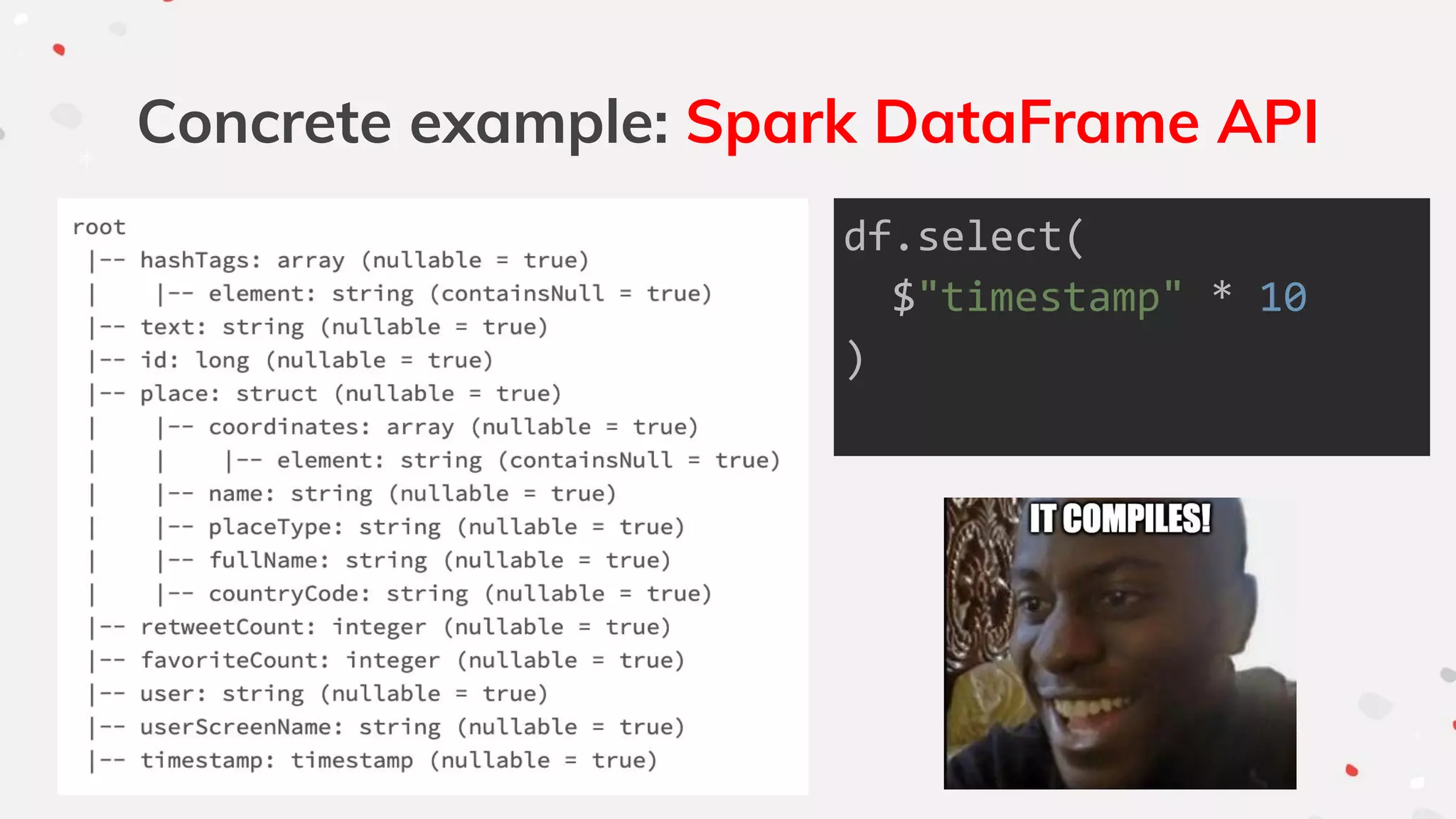
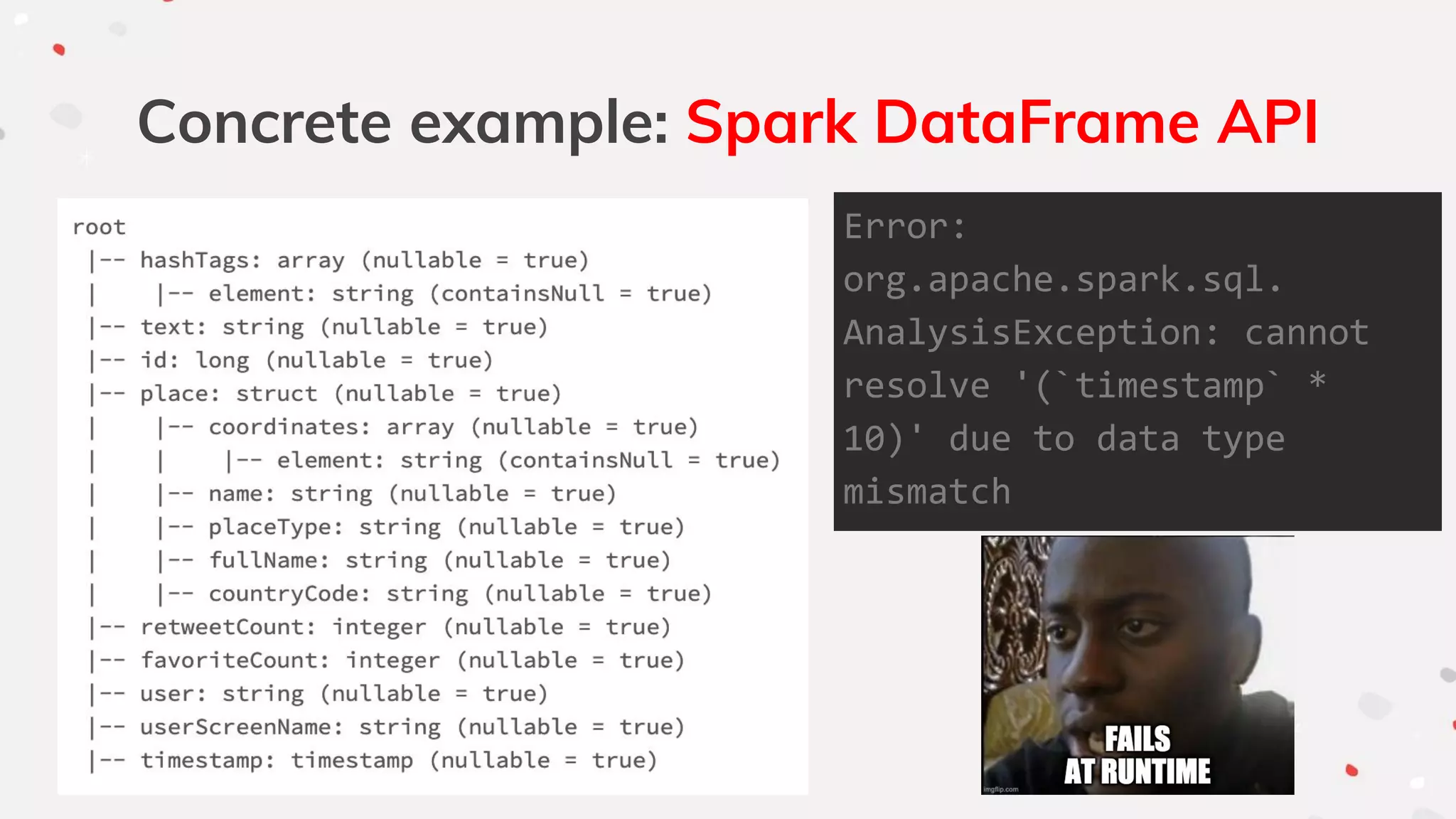
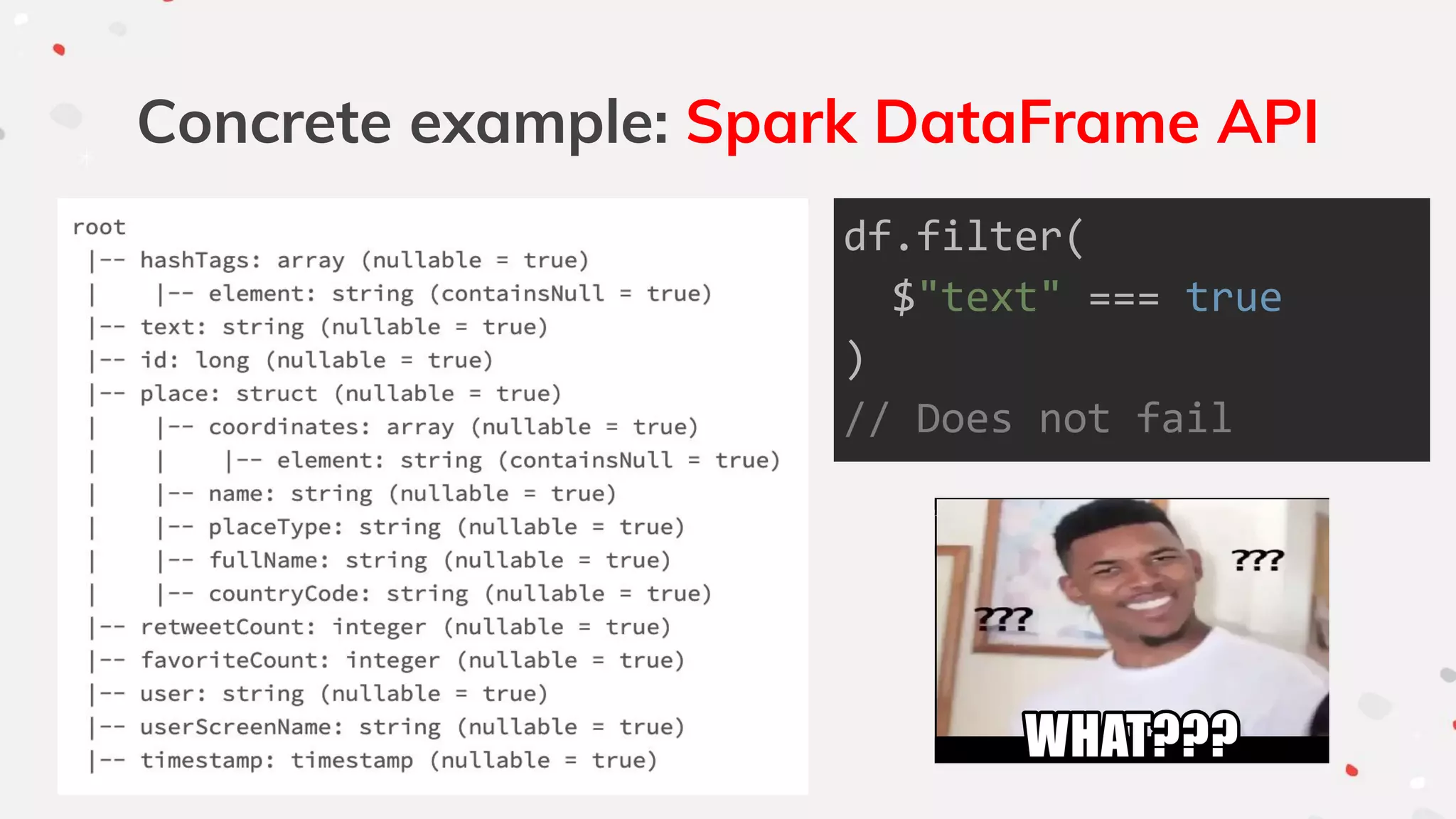
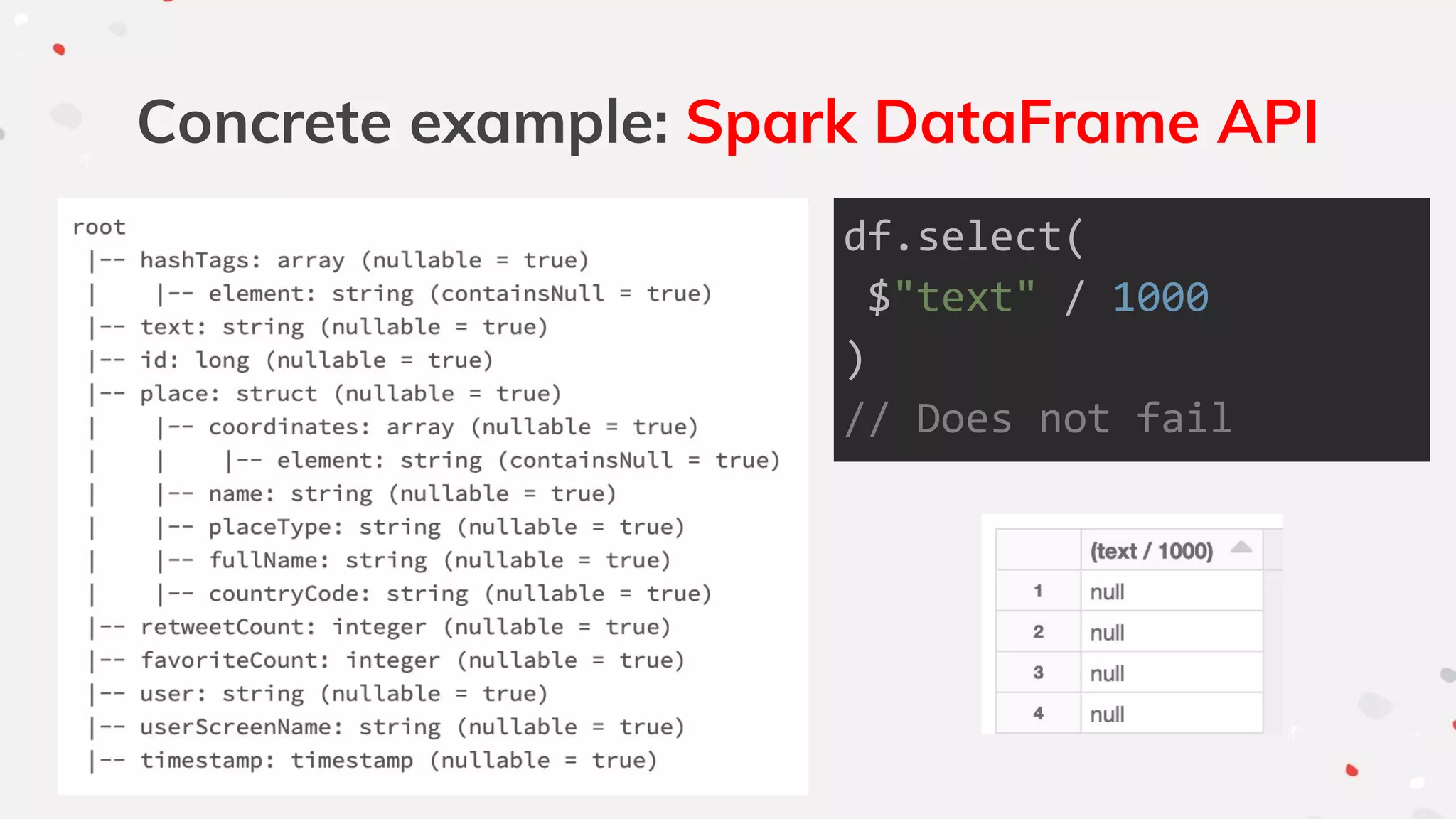

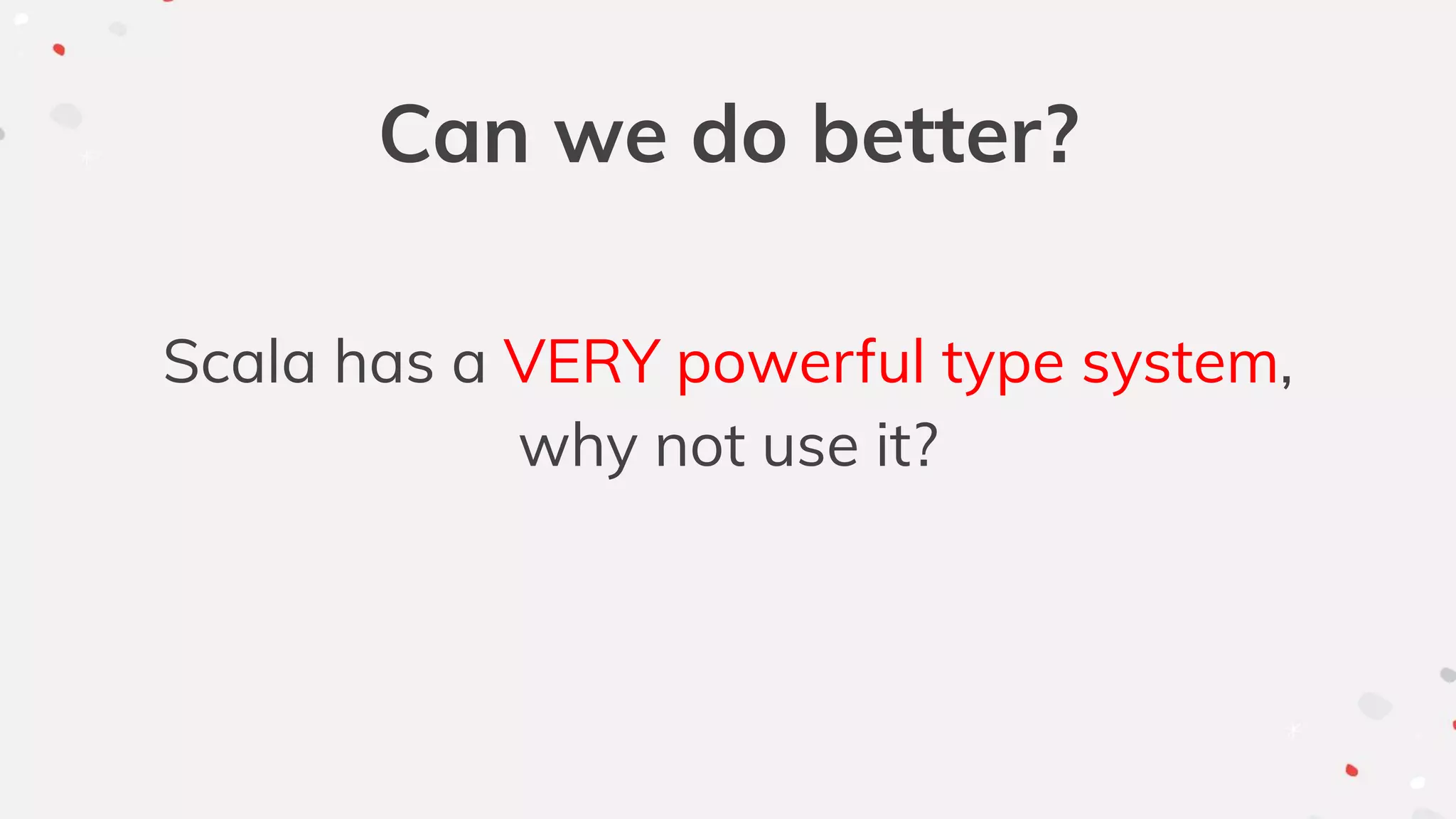
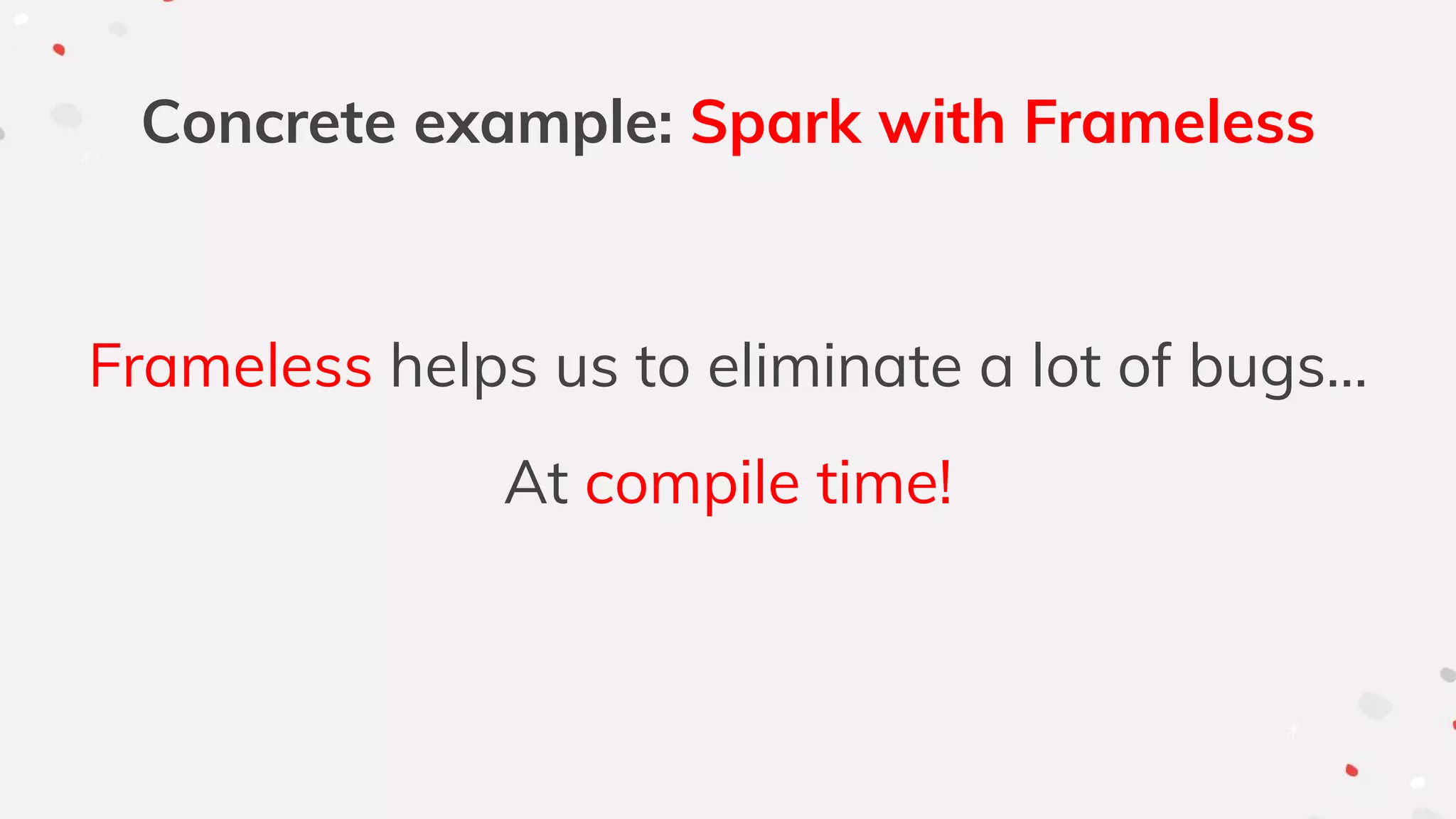
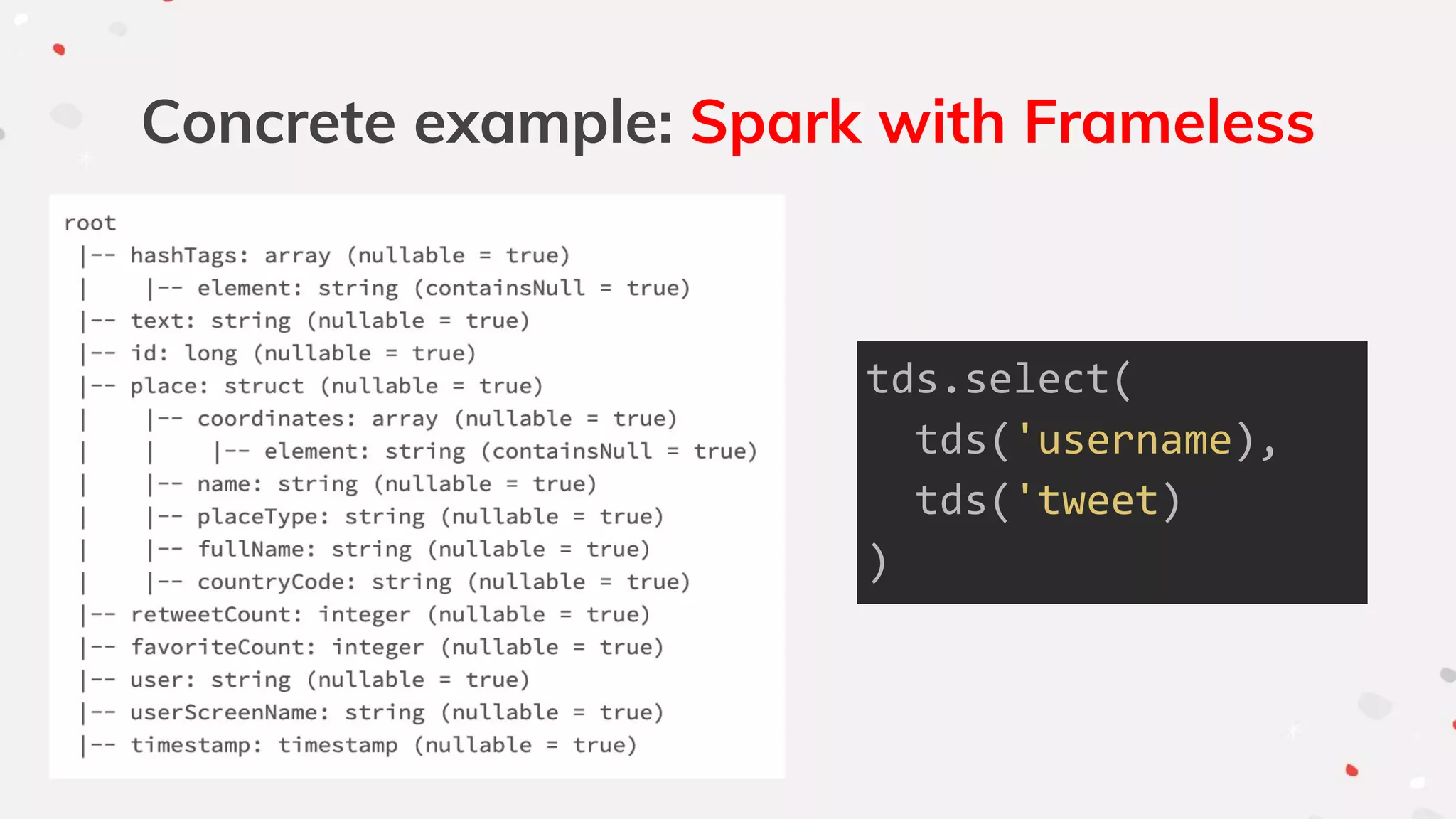
![Concrete example: Spark with Frameless
// Error:
No column Symbol with
shapeless.tag.Tagged[Str
ing("username")]](https://image.slidesharecdn.com/exploringtype-levelprogramminginscalav2-201208150451/75/Exploring-type-level-programming-in-Scala-18-2048.jpg)
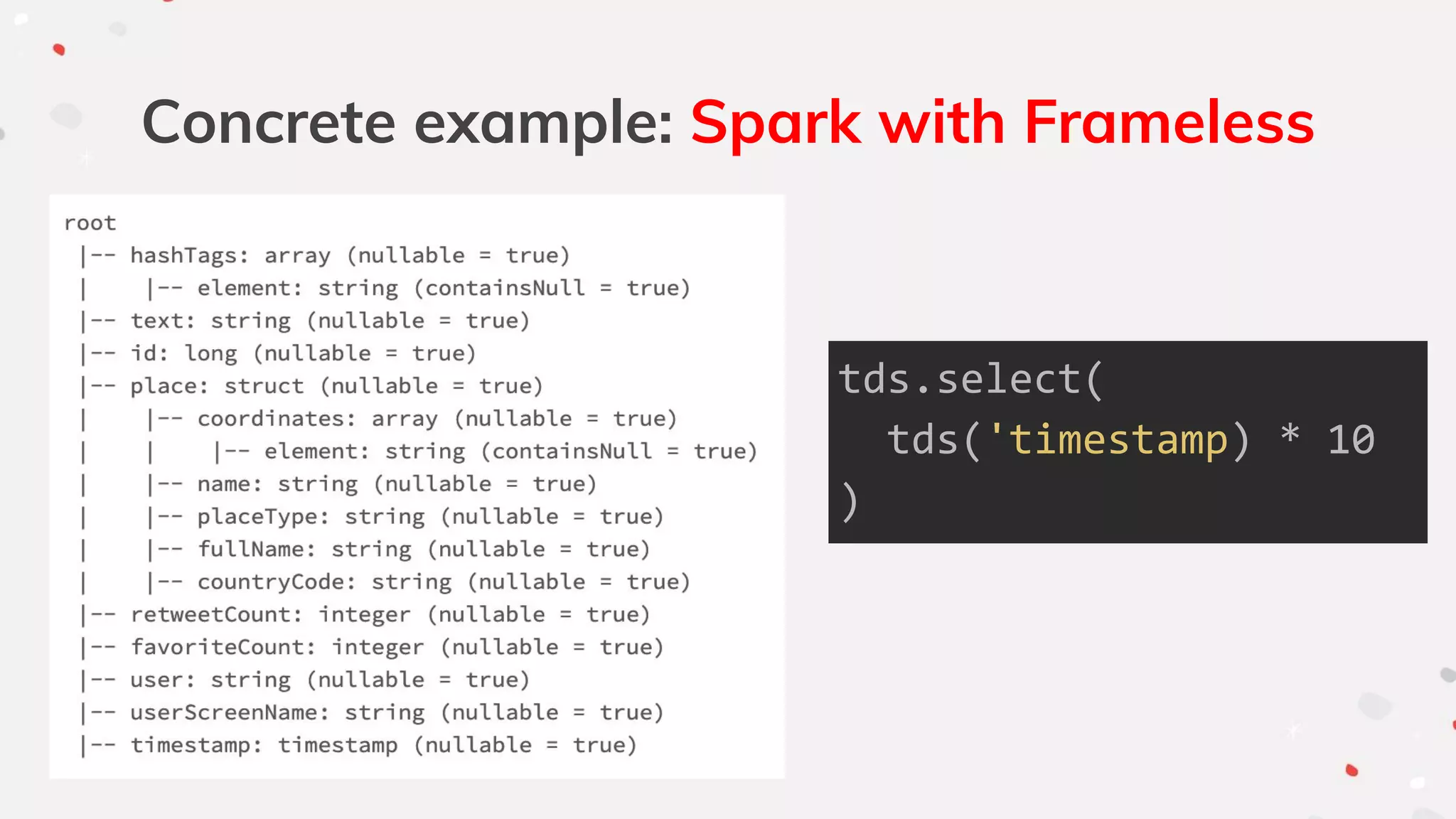
![Concrete example: Spark with Frameless
// Error:
overloaded method value
* with alternatives
[...] cannot be applied
to (Int)](https://image.slidesharecdn.com/exploringtype-levelprogramminginscalav2-201208150451/75/Exploring-type-level-programming-in-Scala-20-2048.jpg)
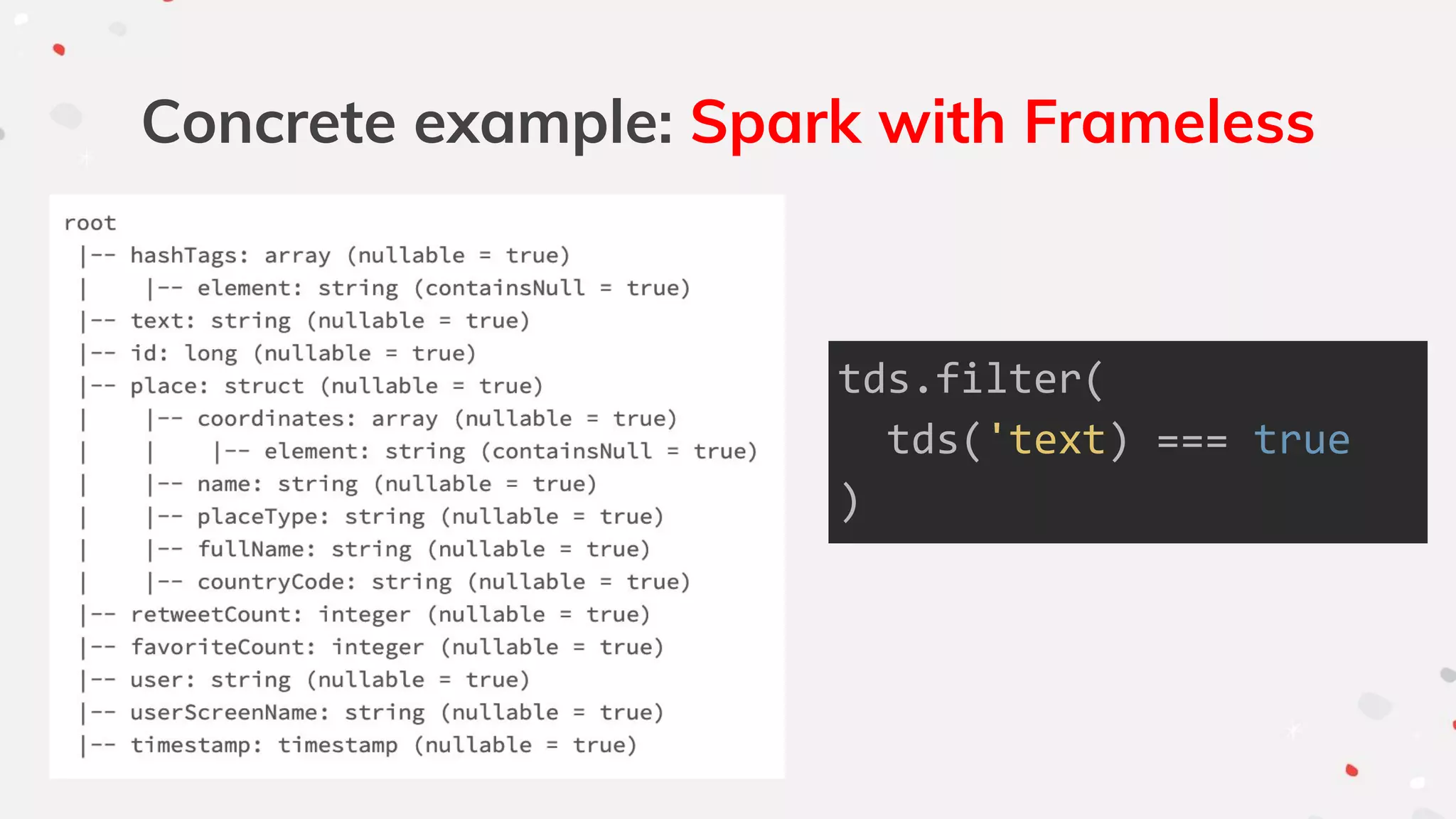
![Concrete example: Spark with Frameless
// Error:
overloaded method value
=== with alternatives
[...] cannot be applied
to (Boolean)](https://image.slidesharecdn.com/exploringtype-levelprogramminginscalav2-201208150451/75/Exploring-type-level-programming-in-Scala-22-2048.jpg)
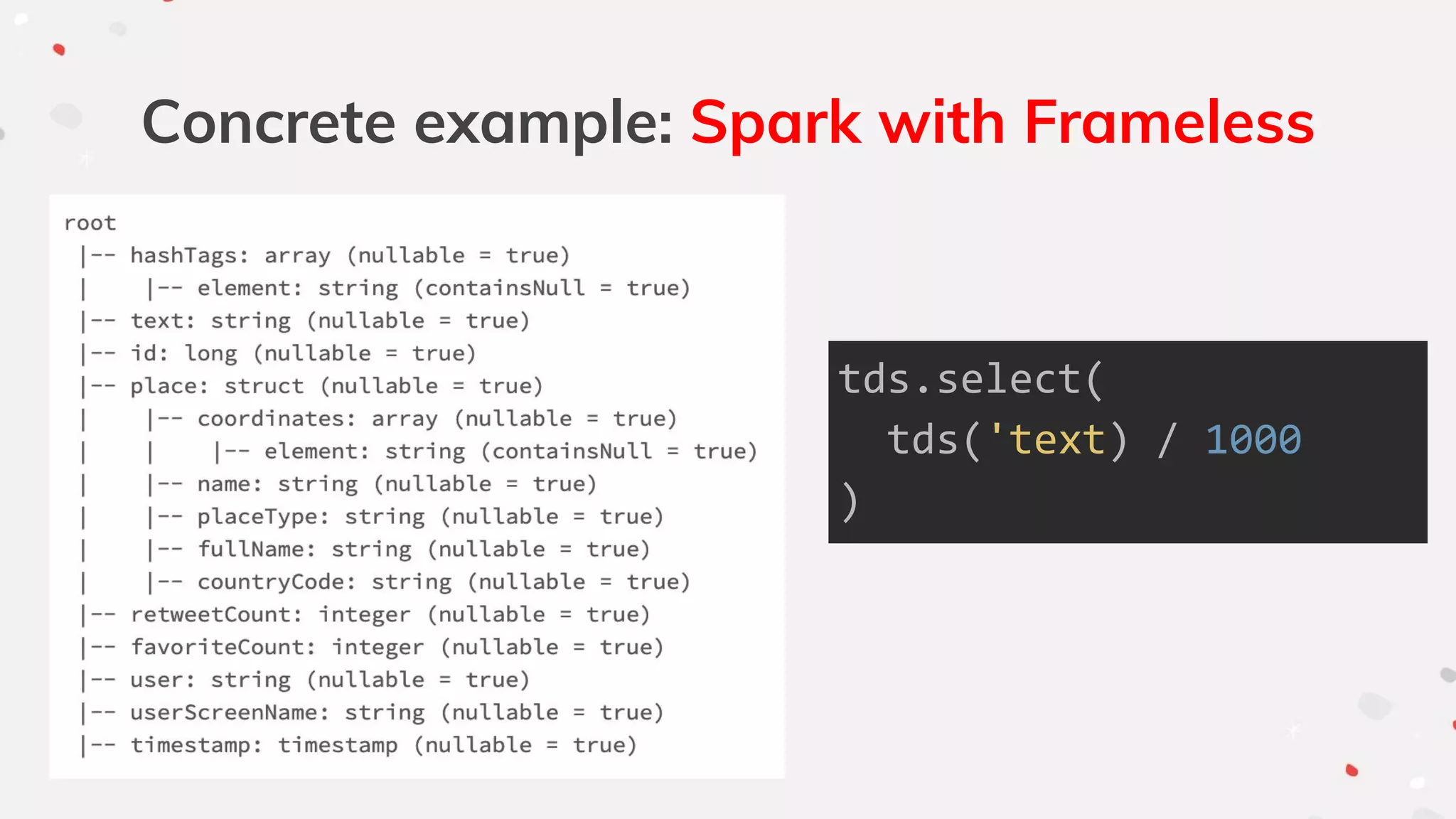
![Concrete example: Spark with Frameless
// Error:
overloaded method value /
with alternatives [...]
cannot be applied to
(Int)](https://image.slidesharecdn.com/exploringtype-levelprogramminginscalav2-201208150451/75/Exploring-type-level-programming-in-Scala-24-2048.jpg)
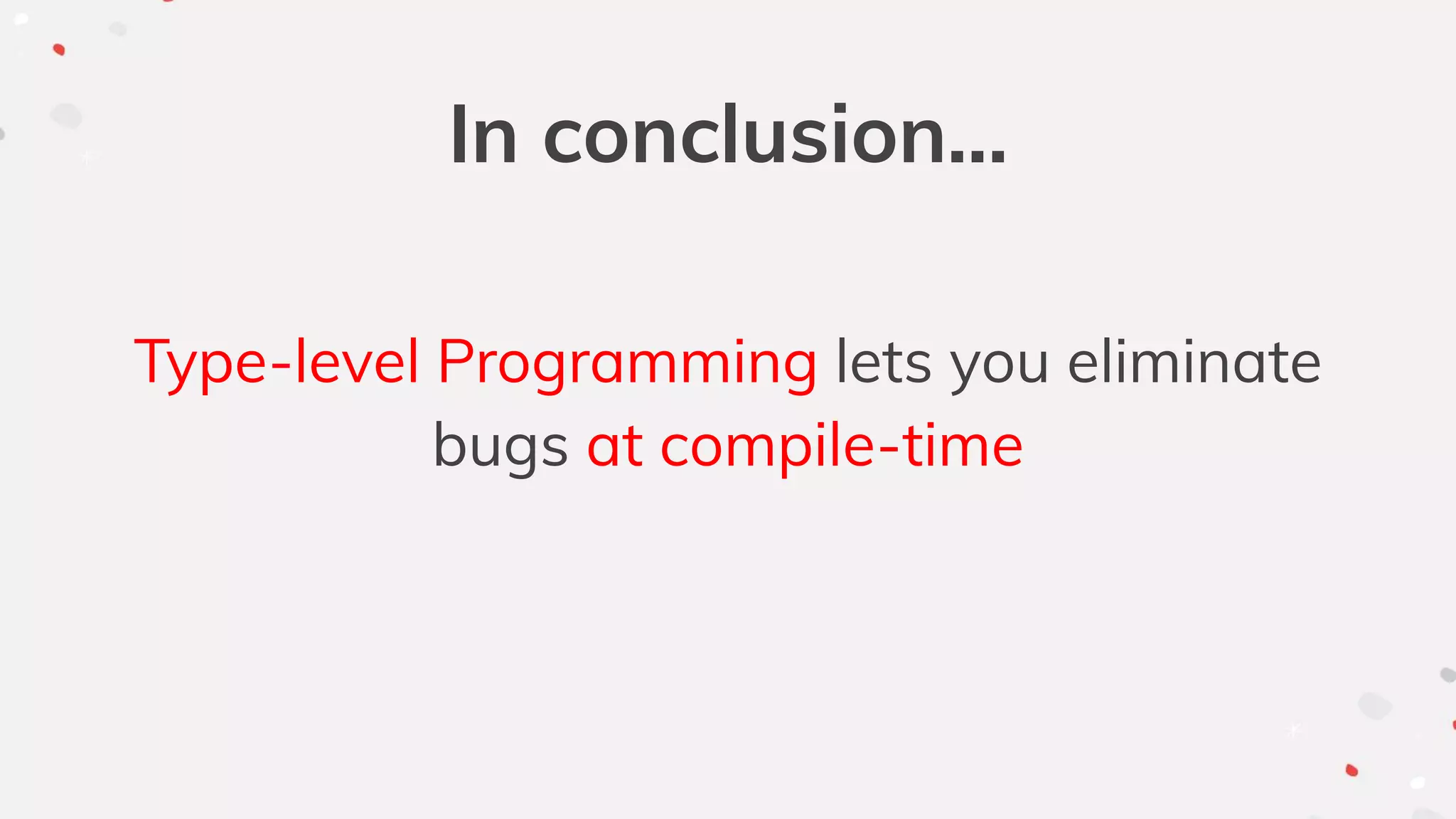
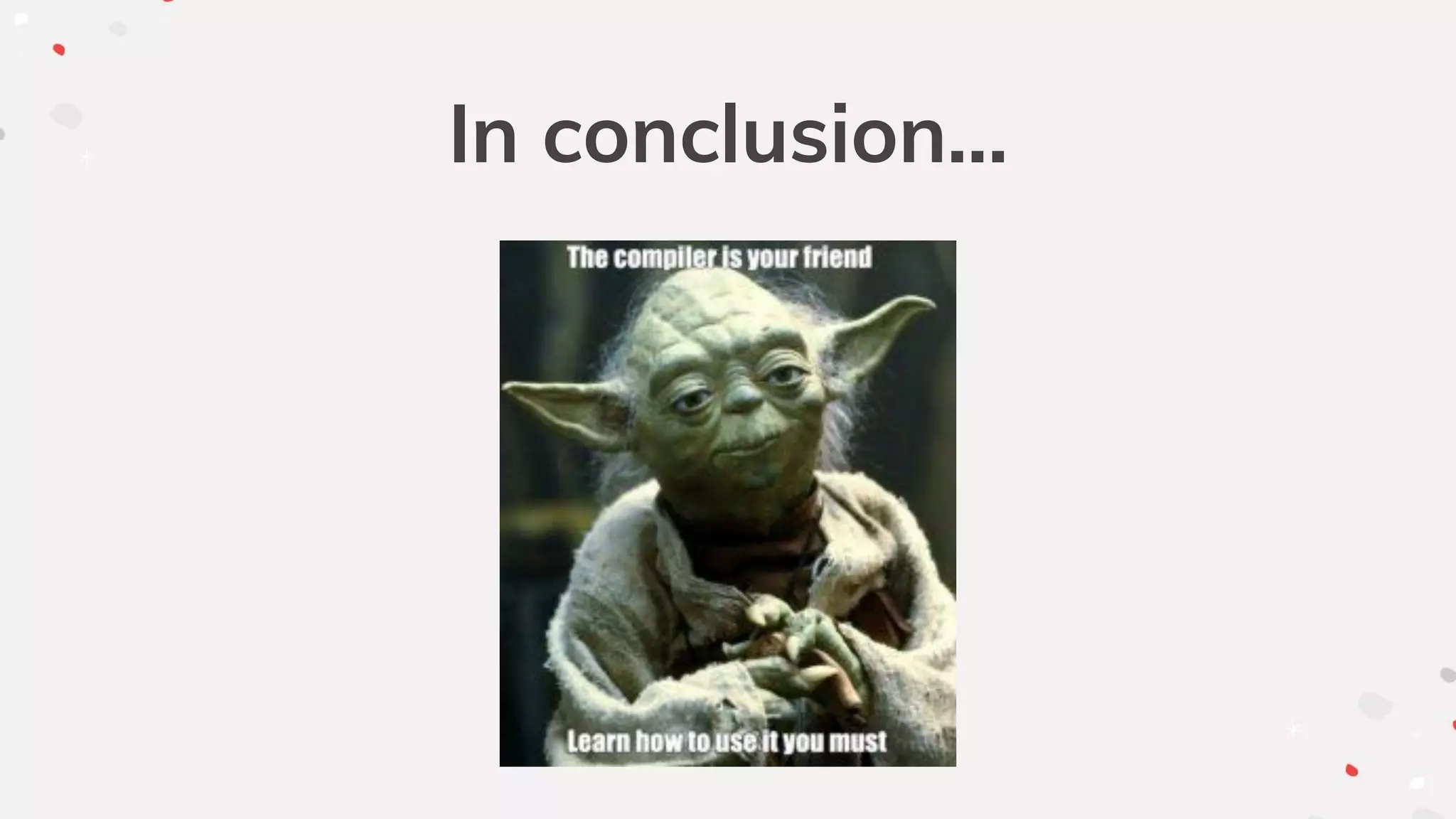
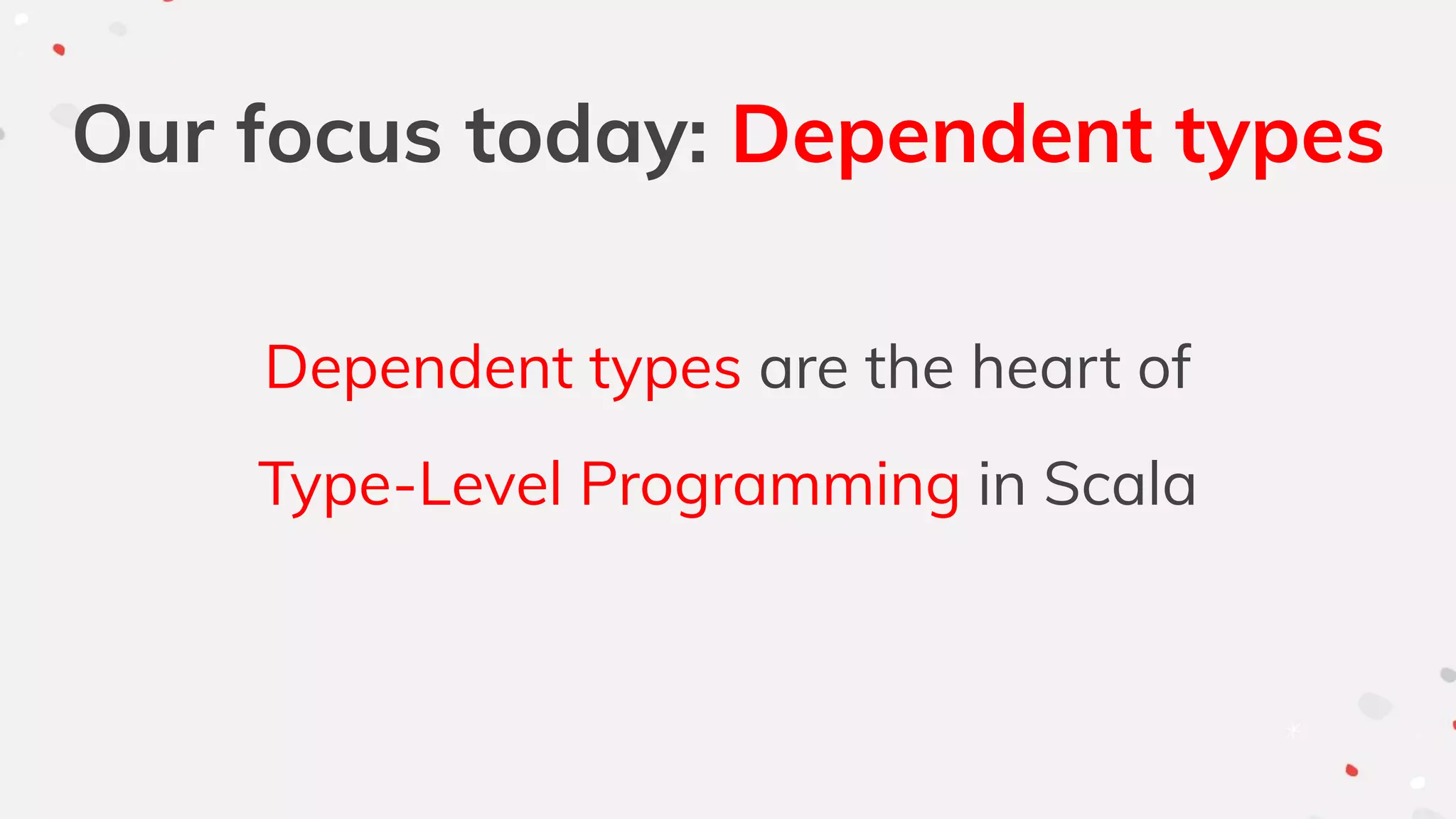

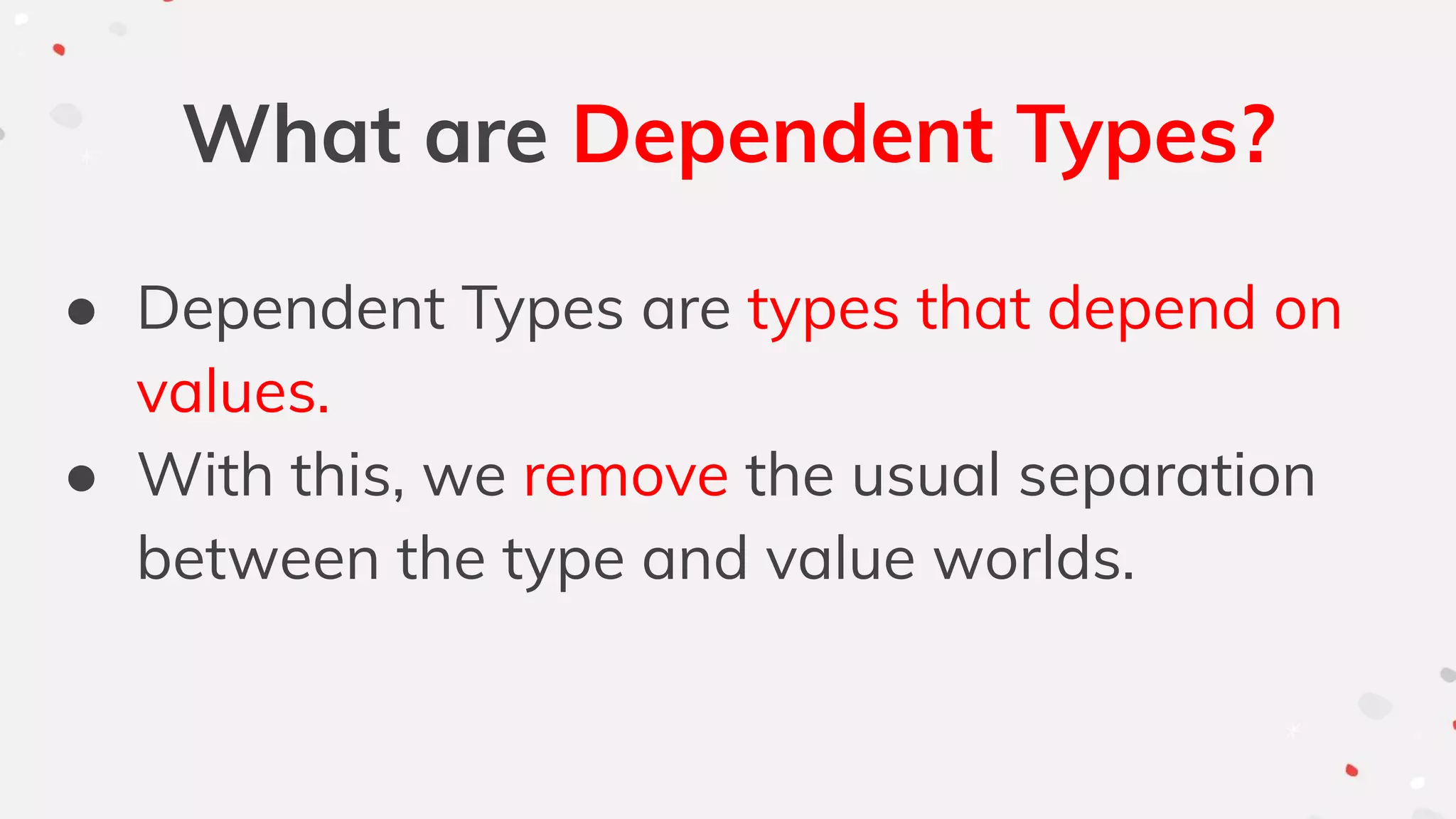
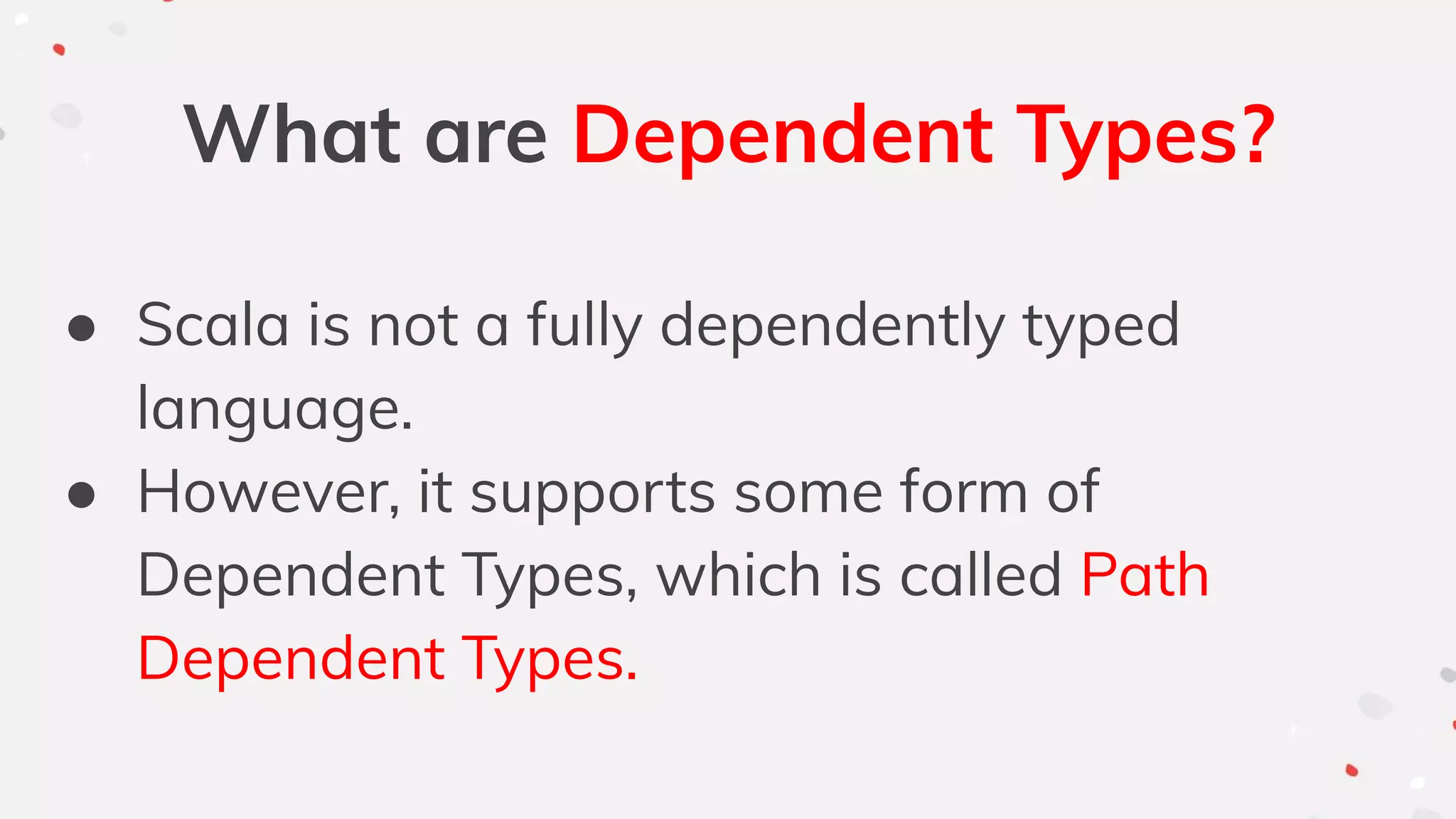
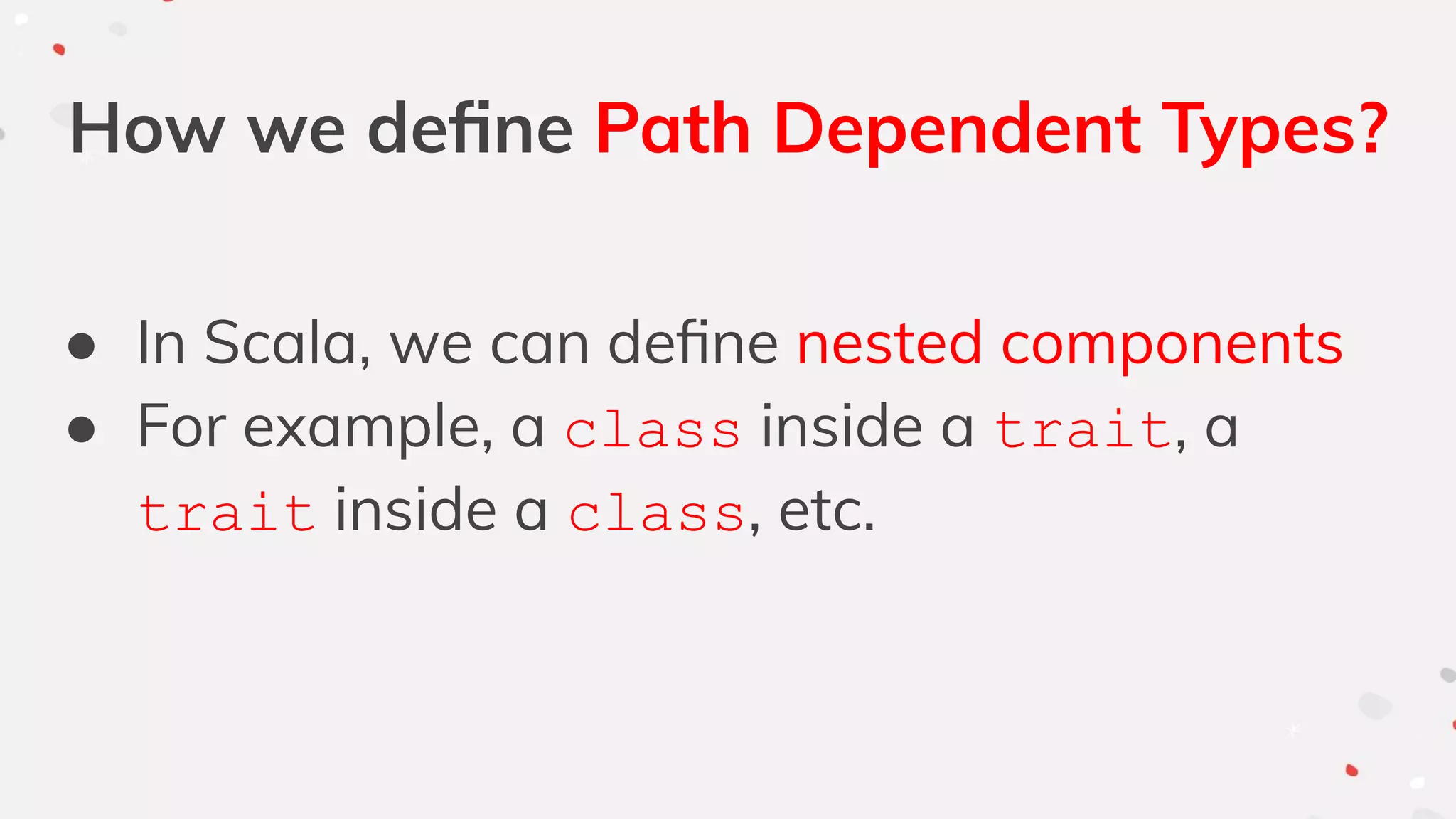

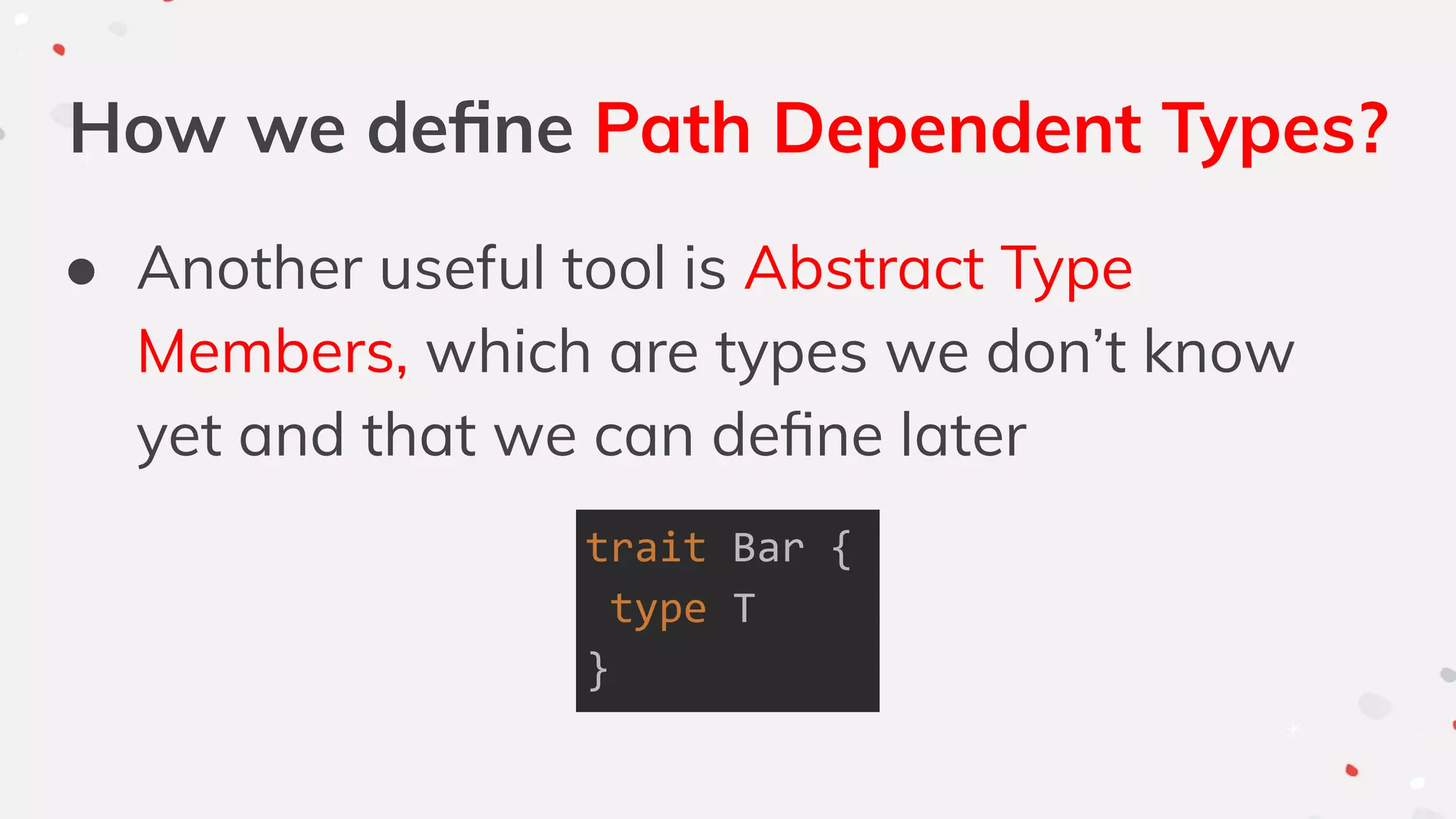
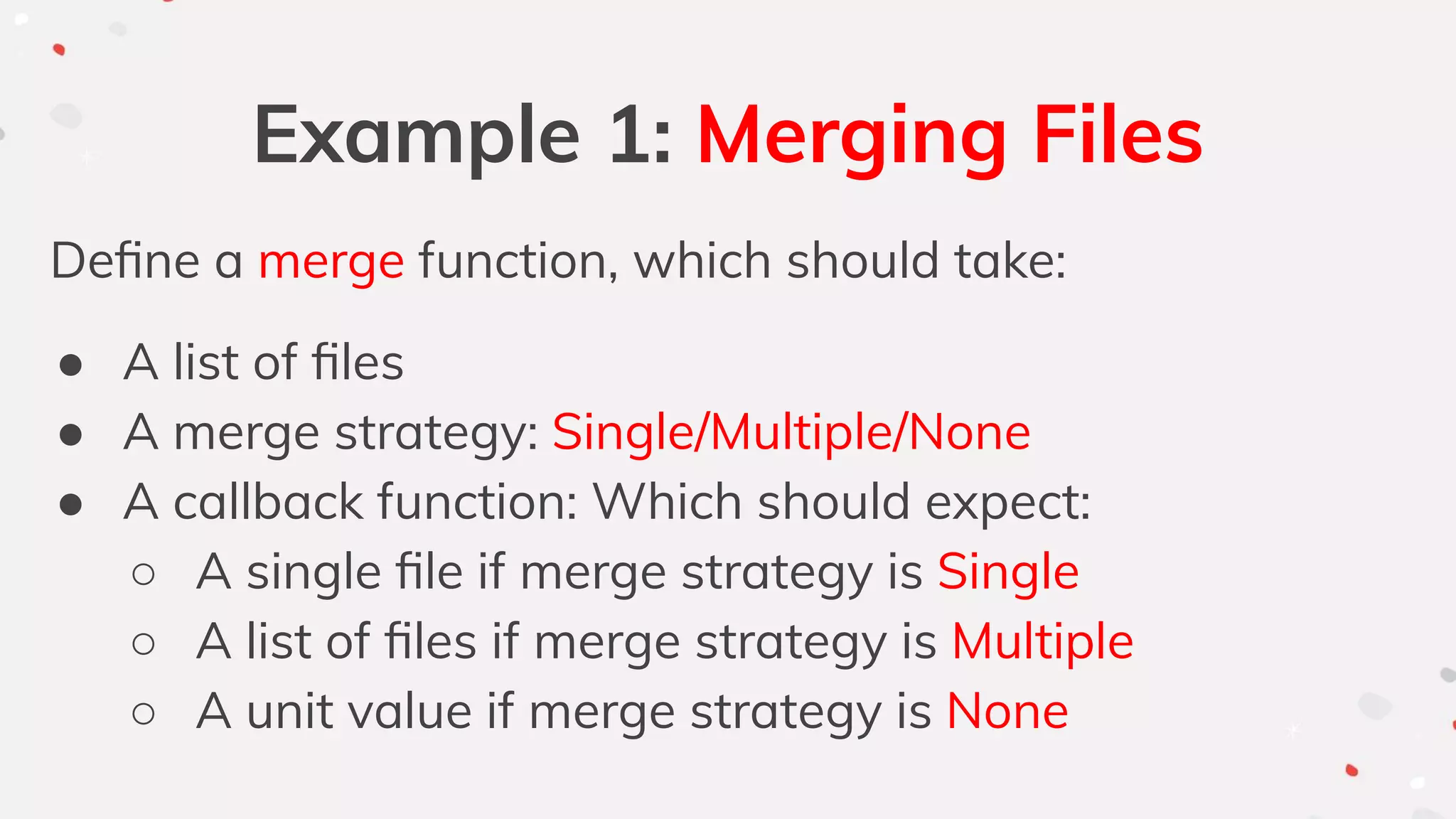
![Example 1: Merging Files
import java.io.File
sealed trait MergeStrategy {
type Output
}
object MergeStrategy {
case object Single extends MergeStrategy { type Output = File }
case object Multiple extends MergeStrategy { type Output = List[File] }
case object None extends MergeStrategy { type Output = Unit }
}
def mergeFiles(files: List[File]): File = ???](https://image.slidesharecdn.com/exploringtype-levelprogramminginscalav2-201208150451/75/Exploring-type-level-programming-in-Scala-35-2048.jpg)

(f: mergeStrategy.Output => T): T =
mergeStrategy match {
case MergeStrategy.Single => f(mergeFiles(files))
case MergeStrategy.Multiple => f(files)
case MergeStrategy.None => f(())
}](https://image.slidesharecdn.com/exploringtype-levelprogramminginscalav2-201208150451/75/Exploring-type-level-programming-in-Scala-36-2048.jpg)
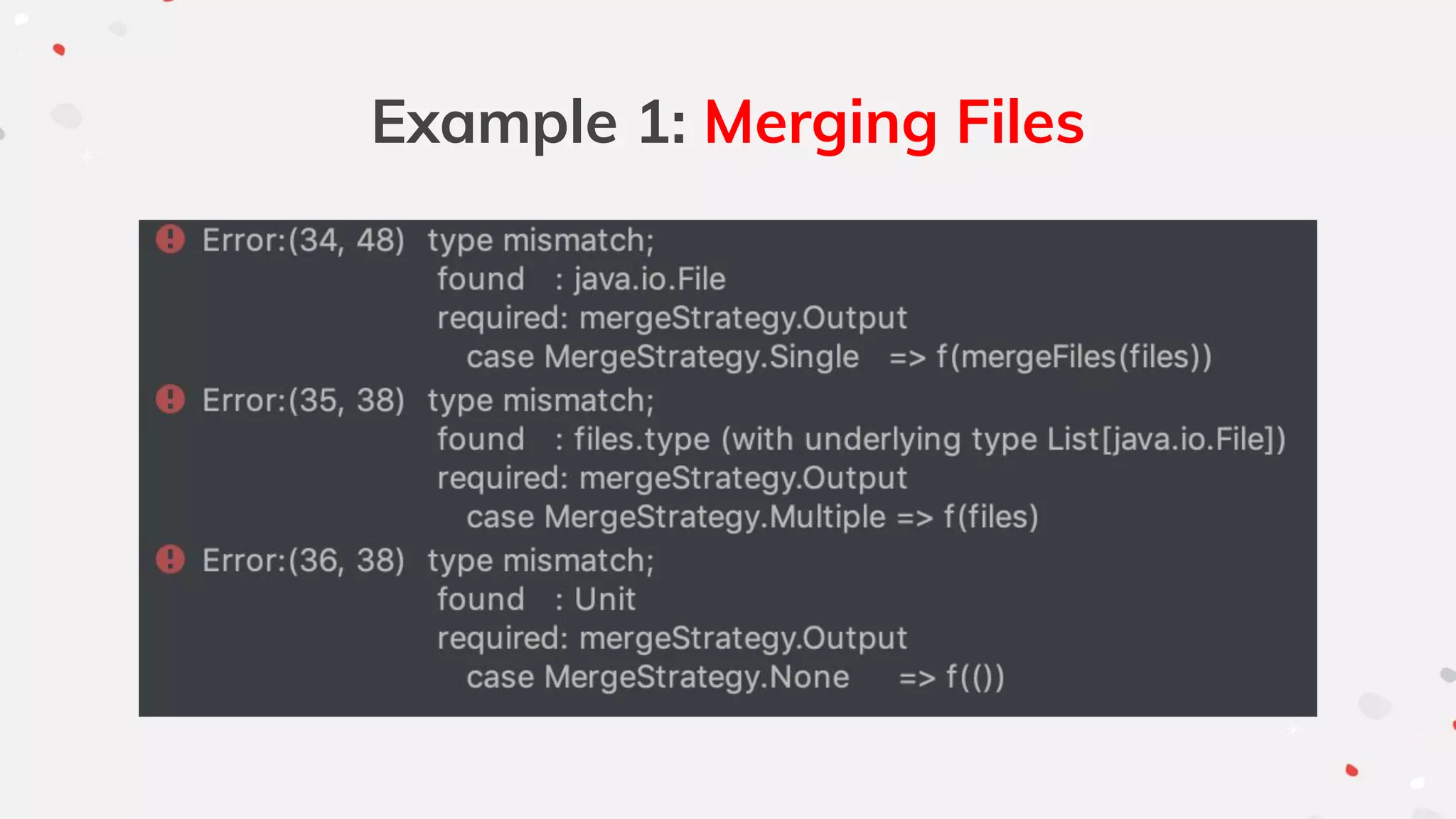
(f: O => T): T =
mergeStrategy match {
case MergeStrategy.Single => f(mergeFiles(files))
case MergeStrategy.Multiple => f(files)
case MergeStrategy.None => f(())
}](https://image.slidesharecdn.com/exploringtype-levelprogramminginscalav2-201208150451/75/Exploring-type-level-programming-in-Scala-38-2048.jpg)
![Example 1: Merging Files
val files: List[File] = ???
merge(files, MergeStrategy.Single) { file: File =>
// Do some processing
}
merge(files, MergeStrategy.Multiple) { files: List[File] =>
// Do some processing
}
merge(files, MergeStrategy.None) { _: Unit =>
// Do some processing
}](https://image.slidesharecdn.com/exploringtype-levelprogramminginscalav2-201208150451/75/Exploring-type-level-programming-in-Scala-39-2048.jpg)
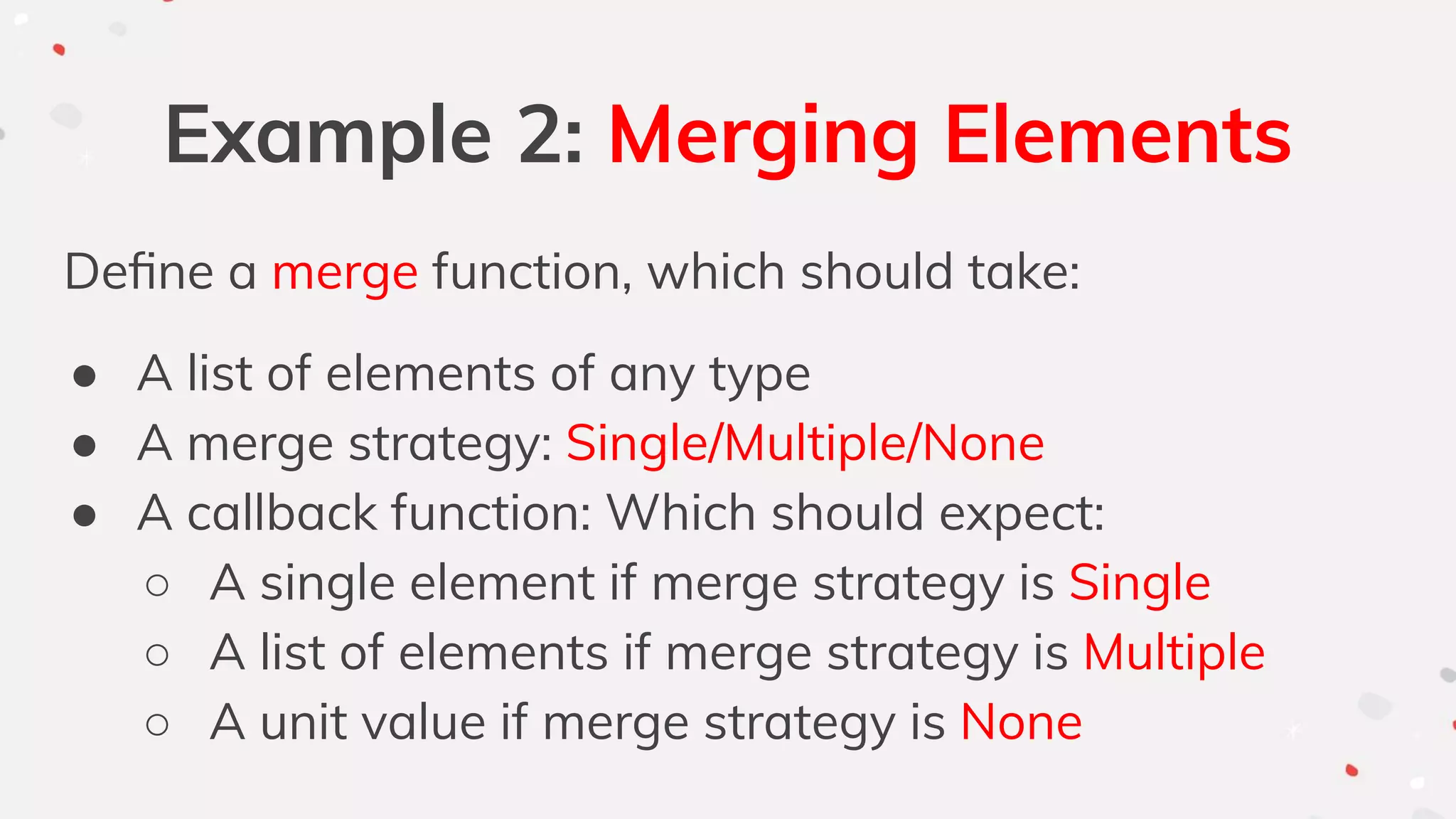
![Example 2: Merging Elements
sealed trait MergeStrategy {
type Output[_]
}
object MergeStrategy {
case object Single extends MergeStrategy { type Output[A] = A }
case object Multiple extends MergeStrategy { type Output[A] = List[A] }
case object None extends MergeStrategy { type Output[_] = Unit }
}
def mergeElements[E](elements: List[E]): E = ???](https://image.slidesharecdn.com/exploringtype-levelprogramminginscalav2-201208150451/75/Exploring-type-level-programming-in-Scala-41-2048.jpg)
![Example 2: Merging Elements
def merge[E, O[_], T](
elements: List[E],
mergeStrategy: MergeStrategy { type Output[A] = O[A] }
)(f: O[E] => T): T =
mergeStrategy match {
case MergeStrategy.Single => f(mergeElements(elements))
case MergeStrategy.Multiple => f(elements)
case MergeStrategy.None => f(())
}](https://image.slidesharecdn.com/exploringtype-levelprogramminginscalav2-201208150451/75/Exploring-type-level-programming-in-Scala-42-2048.jpg)
![Example 2: Merging Elements
val messages: List[String] = ???
merge(messages, MergeStrategy.Single) { message: String =>
// Do some processing
}
merge(messages, MergeStrategy.Multiple) { messages: List[String] =>
// Do some processing
}
merge(messages, MergeStrategy.None) { _: Unit =>
// Do some processing
}](https://image.slidesharecdn.com/exploringtype-levelprogramminginscalav2-201208150451/75/Exploring-type-level-programming-in-Scala-43-2048.jpg)
